





December • January • February Issue 26 W inter 2022/3 The Products & Services Magazine for the UK’s Drinks Production Industry ISSN 2398-2489 Plus all the latest pr oducts & ser vices news fr om the UK drinks industr y’s suppl y chain SHOWC ASES In this issue • Production Equipment • Business Services
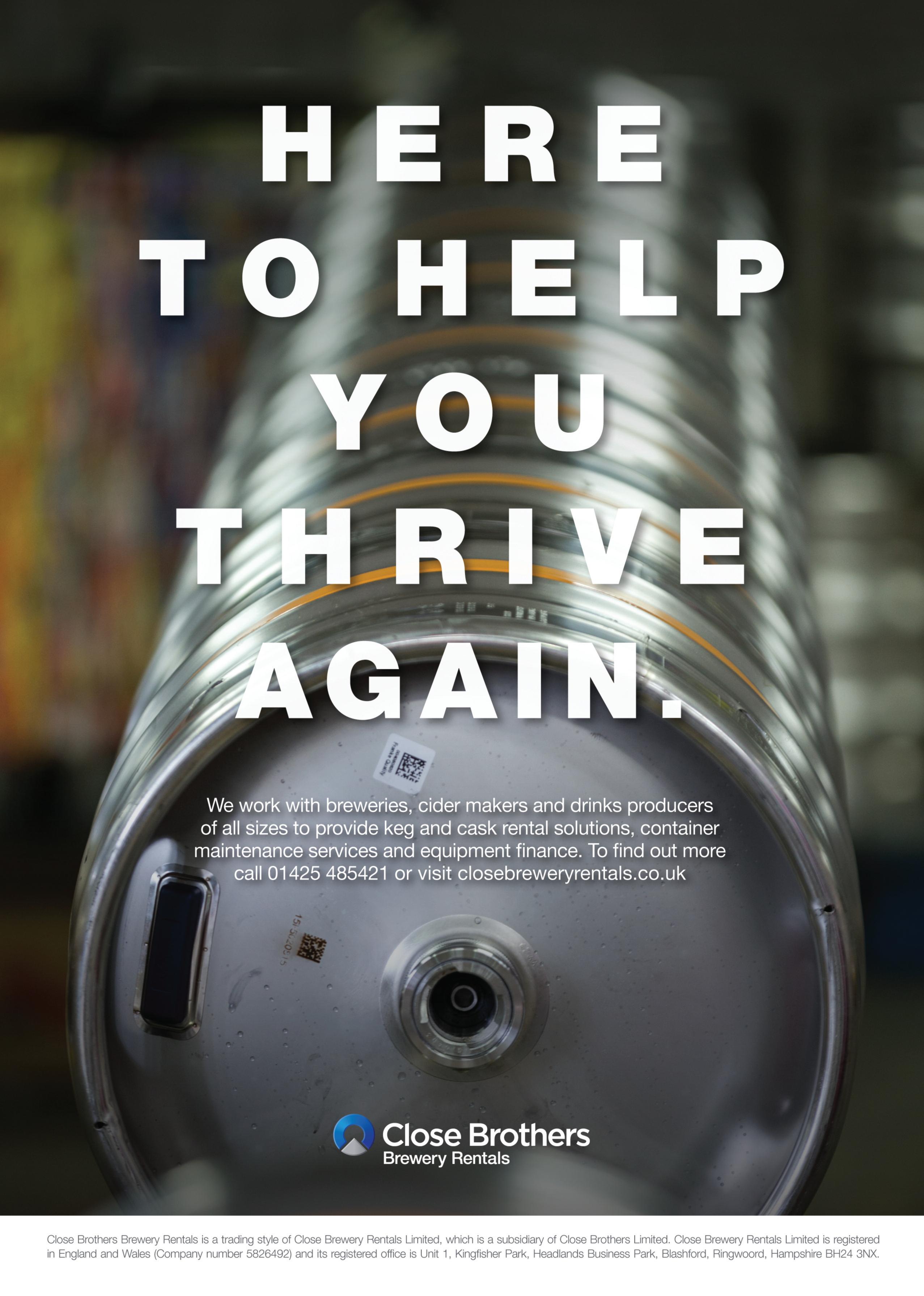
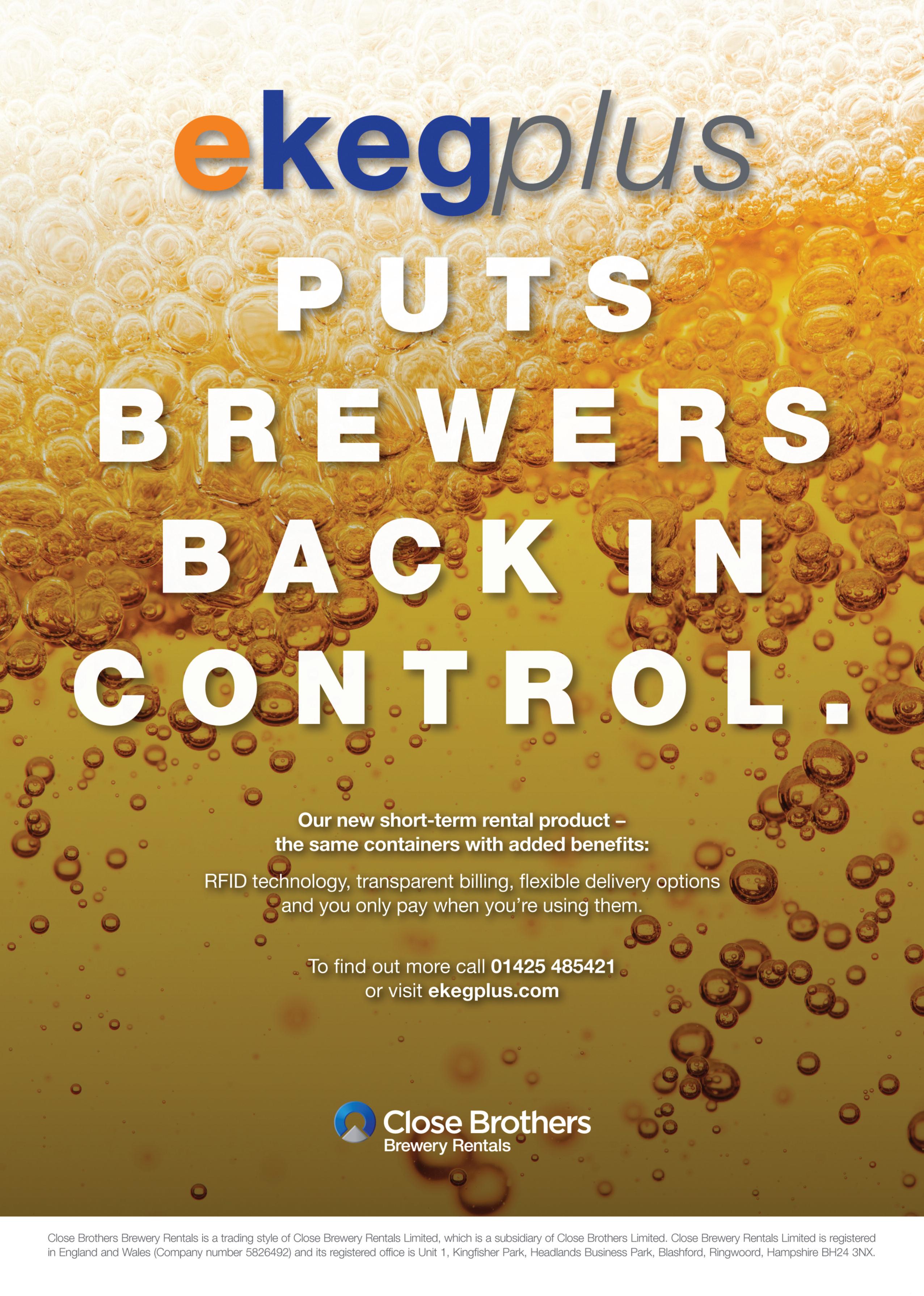

Brewing & Beverage Industries Business is a quarterly ‘Supply Chain’ magazine targeting the UK drinks production industry. If your company supplies products and services to brewers, distillers, cider makers, etc, then this is the platform for you.
Subscription is free and printed copies are mailed out throughout Great Britain and Northern Ireland. If you are one of the very few UK brewers, distillers, or cider manufacturers, not receiving a regular copy, then please contact us today. The
RUTH EVANS MBE

Ruth is CEO of BFBi, whose membership represents the supply chain for the brewing and beverage industries
JULIAN GROCOCK
Julian Grocock is a former chief executive of SIBA with extensive experience in beer, brewery and pub politics




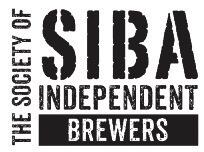
ALAN POWELL
Alan Powell is a specialist excise duties consultant, who heads up the British Distillers Alliance.


ADRIAN TIERNEY-JONES
‘Beer Writer of the Year 2017’, Adrian Tierney Jones is a leading UK beer journalist and international brewing judge
STEPHEN BEAUMONT
Award winning North American-based beer and travel writer with an insight into trends ‘across the pond’
Published by freerbutler limited PO Box 9666 • Nottingham • NG10 9BY United Kingdom
Tel: 0115 8 549 349 brewingbusiness.co.uk
Our print circulation is audited and certified
Brewing & Beverage Industries Business magazine is an independent publication delighted to be a MEDIA PARTNER to
Representing the entire value chain supplying the Brewing, Food & Beverage Industry
Members of
freerbutler limited is a Supplier Associate member of
All rights reserved No part of this publication may be stored in a retrieval system or transmitted in any form or by any other means, electronic or mechanical, photocopying, recording or otherwise, without the prior permission of freerbutler limited
Whilst every effort is made to ensure that the information in this publication is accurate and up to date, freerbutler limited does not take any responsibility for errors or omissions Opinions expressed in editorial contributions to this publication are those of their respective authors and not necessarily shared by freerbutler limited © freerbutler limited 2022
5
WELCOME TO
Production Industry ISSN 2398-2489 ALWAYS IN PRINT & ONLINE - Now into our 7th year! Magazine Editor Chris Freer Digital Editor Simon Butler WHO WE ARE For editorial or advertising enquiries, call the Editor on 0115 8 549 349 or e mail: chris@brewingbusiness.co.uk
Products & Services Magazine for the UK Drinks
WHO WRITES FOR U S
Shop
Cover illustration Courtesy of Beer Box
Ruth Evans MBE

Time to put our heads together
As we approach 2023 against a backdrop of chaos, in terms of the aftermath of Covid, Brexit, the Ukraine war and our own Government, all companies are looking to their short-term strategies to address the challenges we are all experiencing
Here at BFBi, as with other Associations, we are supporting Members with the information they need to increase their business resilience

In the long history of our Association, we have partnered with other industry Associations, when needed, to share information in order to benefit all companies whether it be technical information, lobbying strategy or, as we need now, information to build business resilience against unknown economic, political and environmental challenges, not of our making
I would like to suggest that this is a time when we should consider collaborating, developing an Industry Business Resilience Working Group
Issues that are common across all sectors and business sizes appear to be:
• Staffing
• Rapidly increasing costs of production
• Energy security
• CO2
• Meeting Government environmental sustainability targets
• HR issues (burn out within senior management post Covid)
You may well feel there are others of importance or that those I have listed are not but, by partnering and working together, we can develop a list of issues and, from there, establish working groups of industry experts to address and support our industry as well as providing an industry strategy to present to Government
Collaboration throughout the supply chain has always been a point of difference within the brewing and beverage industry and, if ever there was a time to put our heads together to strengthen our businesses, it is now
Please do contact me if you feel this would be a worthwhile initiative (or not), indicating what you feel would be the most constructive format/process ruth evans@bfbi org uk

Ruth Evans MBE, BFBi C.E.O.
BFBi annual Trade Directory
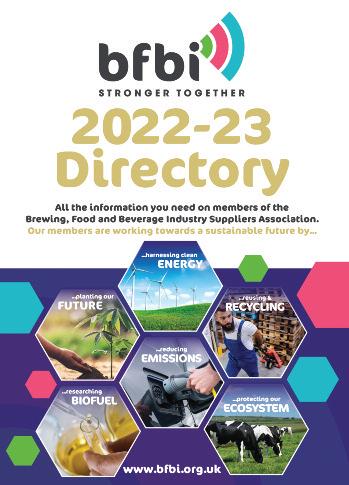
New issue now out!
The most authoritative directory of the UK food & drinks market available
The directory is free of charge to all drinks manufacturers and BFBi members
For details of how to obtain a copy, please contact admin@bfbi.org.uk
Established in 1907, BFBi’s membership represents the entire value chain supplying the brewing and beverage industry from seed geneticists through raw materials, brewhouse and process equipment to dispense, point-of-sale and brewers/ distillers. The Association’s objective is to be the foremost trade association providing opportunities for its Members to develop within the brewing, food & beverage industry
As well as offering many benefits and services to suppliers of raw materials, process and packaging machinery, dispense and point of sale products, BFBi is a Trade Challenge Partner for various overseas exhibitions and owner and organiser of the oldest international brewing and cider Awards in the world.
6
Photo by Gerardo Jaconelli
SEE
FOR MORE
Word from the BFBi For some important news about our next issue, and an even stronger Media Partnership between Brewing & Beverage Industries Business (B&BIB) magazine, and BFBi (Brewing, Food and Beverage Industry Suppliers Association), please see the announcement on Page 51 of this issue.
PAGE 50
INFO

Adrian Tierney-Jones
Widen out the language surrounding beer
What do you think of when you order an IPA, an India Pale Ale? Presumably you might have a ponder on the hop varieties, or maybe ask what kind of sub-style it is. Is it a Milkshake IPA, an IPL, a session IPA or maybe just an IPA whose home might be the West Coast, East Coast or Belgium? Every few months we seem to have a new iteration of IPA, with the Cold variation seemingly the latest (unless I have missed one, do let me know if I have)
However, I’m guess what the average modern beer lover might not think of is the historical context of this most popular of styles, even if its name has a suggestion of the Victorian heyday of the beer, when it was sent to the Indian Raj courtesy of the East India Company, the British Empire’s occupying forces in the sub continent of India
When I first started writing about beer in the late 1990s, the only IPAs I can recall are Worthington White Shield, Freeminer ’s Trafalgar IPA (that was such a gorgeous beer) and Burton Bridge’s 7 5% Empire Pale Ale (oh and the odd American import) The label of Burton Bridge’s example featured (and still does according to its image on the website) two Victorian men, one a soldier and the other in cricketing whites, relaxing with a crate of Empire Pale Ale, somewhere in the Empire It’s all rather innocuous and portrays the British Empire as a paternalistic and benign force, rather than the brutal and racist reality
At this stage you might be wondering what has this distant history has got to do with the IPAs we drink, especially one that looks like a smoothie and has enough fruit on the palate to open its own grocery store? My answer would that it has a lot to do with beer, in the same way as in the last couple of decades campaigners have called out breweries who give their beers sexist names To paraphrase Trotsky, you might not be interested in bad beer but bad beer is interested in you
Fortunately there are attempts to change things October saw the release of Empire State Of Mind, but this time here was a beer that attempted to face up to the way the beer style has often been marketed
with benign images of the East India Company and the Empire The beer was the brainchild of award winning beer writer David Jesudason, who got together with the south east London brewery Villages to produce a post colonial IPA (Jesudason was also the driving force behind the British Guild of Beer Writers’ Diversity in British Beer Writing Grant) This was a beer that followed in the path of the ground breaking article he wrote last year for Good Beer Hunting, which focused on the way IPA is often branded
“When I wrote a piece for Good Beer Hunting about how modern IPAs are marketed in a way that often glorifies colonialism in India, the next logical step was to attempt to brew a 'decolonised IPA',” he told me “It had been tried before but brewers felt it was too much explaining for one beer and too much wording on a can went against the clean aesthetics often found in craft packaging
“I hope Empire State of Mind proves that it can be done It took my favourite craft beer Village’s Big Salad IPA and gave it an Indian twist It was brewed with coriander, amchoor, turmeric and jaggery The spicy is really subtle and mixes well with the lime and mango additions
“Despite IPAs being a product associated with the war machine that was the East Indian Company, which asset stripped India and pillaged its wealth, I don’t want to 'cancel' IPAs They’re a great way to introduce people to craft I just wish we could also explain their dark legacy at the same time.”
Refreshing and benevolent on the palate, the beer (naturally it’s hazy)
has a benign juiciness and tropical fruitiness in its mouth feel and on the palate, joined by delicate spice notes and a very light sweetness It’s easy drinking and hopefully this will be the start of a realignment in the way in which IPA is viewed
The release of Empire State of Mind is just the latest instalment in which brewers, commentators and beer fans are attempting to widen out the language and the understanding that surrounds beer It’s not about ‘canceling’ or being woke, it’s more about realising that beer needs to embrace everyone in society and besides there are no free passes for lazy history any more
After all, it can’t be said enough times: beer is for everyone
Adrian Tierney-Jones

Voted
He’s
8 Called To The Bar
Beer Writer Of The Year 2017 • Best Beer Writer, National Media 2019
‘Beer Writer of the Year 2017’ by the British Guild of Beer Writers, Adrian Tierney-Jones is a freelance journalist whose work also appears in the Daily Telegraph, Pellicle, Good Beer Hunting, Daily Star and Beer Magazine amongst many others
been writing books since 2002 and they include West Country Ales, Great British Pubs, Britain’s Beer Revolution (co written with Roger Protz), The Seven Moods of Craft Beer and his latest, United Kingdom of Beer He is also general editor of 1001 Beers To Try Before You Die and contributor to The Oxford Companion to Beer, World Beer and 1001 Restaurants You Must Experience Before You Die.
Chair of Judges at the World Beer Awards and also on the jury for several other competitions
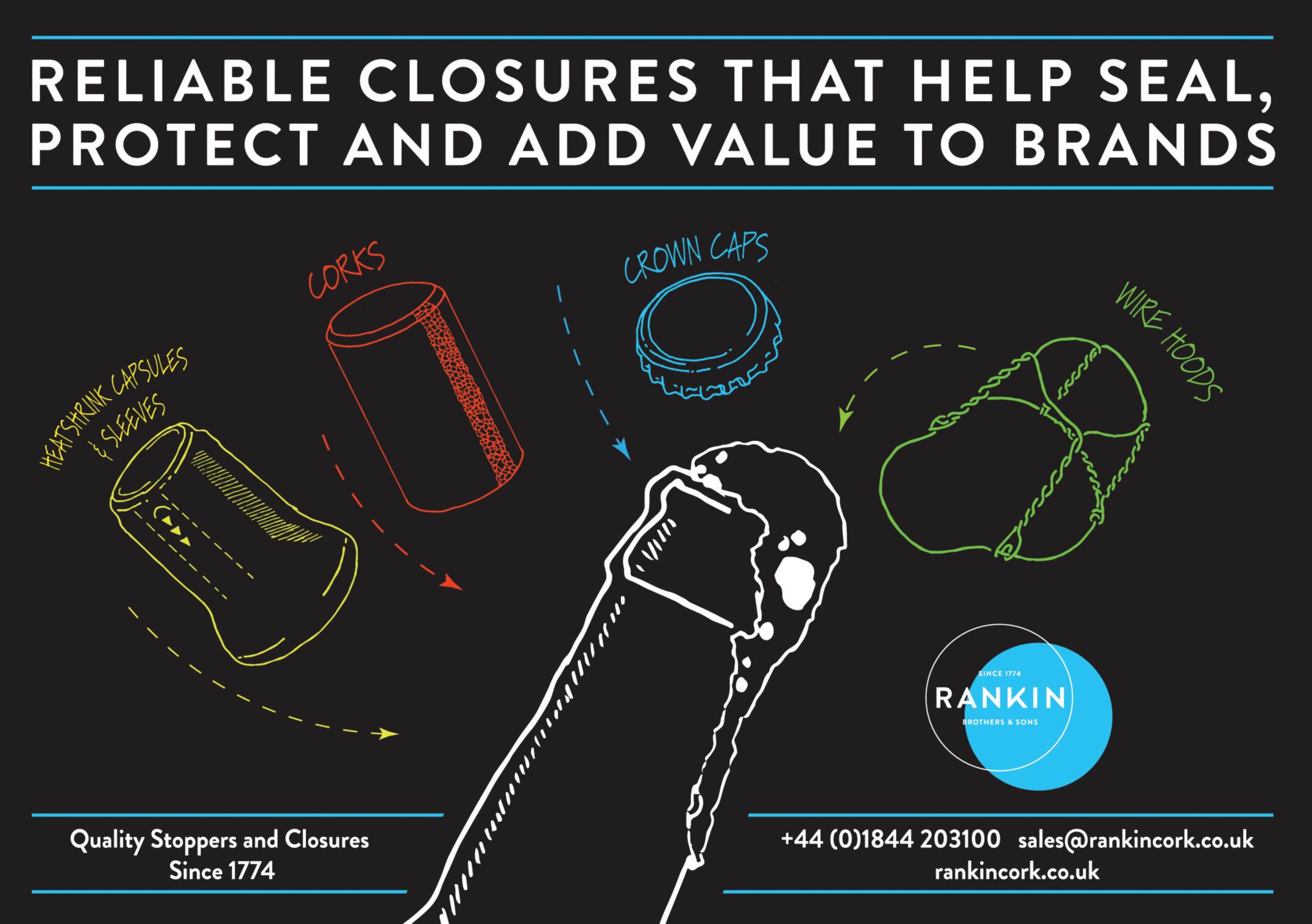
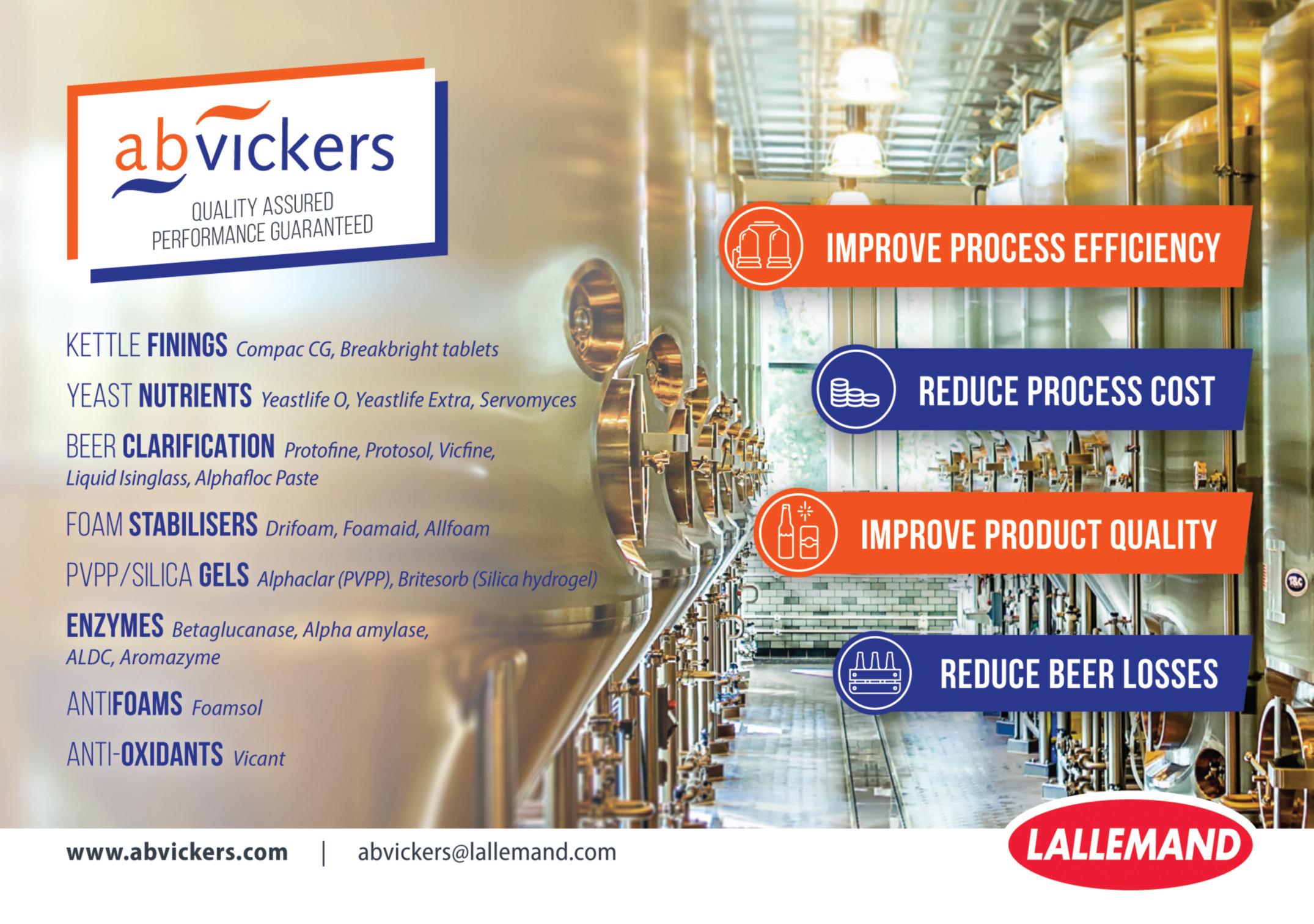
9
Stephen Beaumont
Patting Ourselves on the Back
As I type these words, I am drinking a glass of beer. I understand if you find this unsurprising, since I imagine that a lot of readers expect we beer writers to be more-or-less perpetually soused. But the truth is that we are not, or at least I’m not, at least most times, since what one writes while drinking seldom stands up to sober reading.
In this case, however, I am drinking in celebration Just a few days ago, I and the Canadian Craft Brewers Association released the results of the inaugural edition of the Canada Beer Cup, and as the overseer of the judging, although not a judge myself, I could not be happier with the results
In total, we awarded 175 gold, silver, and bronze trophies across 70 style categories, including one category I personally created, Canadian Style Beer, challenging brewers from coast to coast to coast yes, we have three of them, including one rather jagged one in the north to create a beer they deemed to be classically Canadian, and explain their reasoning in a mini essay (The winner, incidentally, was a beer brewed using maple sap in place of water, with Canadian malt and landrace Canadian hops, and yes, predictably maple wood spirals and maple syrup added to conditioning The brewer was Toronto’s Shacklands Brewing, certainly a stand out in the city, although the beer is one I have not as yet tasted )
You may now be asking yourself why you should care about an all Canadian beer competition, and I’m going to tell you. Because the reason I took on this rather massive project, which involved receiving almost double the number of entries we anticipated, over 1,300, and co ordinating several ever shifting judging scenarios, was because Canadian beer has over the last several years risen to extraordinary heights of quality and creativity And yet hardly anyone knows about it
What’s more, and I say this as a long standing city sceptic, my hometown of Toronto has become a beer city the equal of any in the world
This is why, when the originators of the Canada Beer Cup, the above noted CCBA, approached me to oversee the judging, I agreed on the understanding that I would be able to invite international judges to experience Canadian beer and the Toronto beer scene They agreed, so for the first time in Canadian beer competition history we had judges from England, including Pete Brown, Italy, and the United States, as well as several esteemed judges from across Canada
While I cannot speak directly to the experiences of any of the judges, the feedback I received was uniformly positive although there is always the possibility they were just being polite guests More to the point was my personal tasting experience behind the scenes, both towards the end of the judging days when we backstage actors would allow ourselves a sample of a beer here and there, and in the aftermath as I now continue to sample my way through the leftovers Based upon that, I can safely say that the general quality of the beer submitted was as high as I have experienced in any competition anywhere
Now before this column becomes a promotional vehicle for Canadian beer and Destination Toronto, let me quickly add that this national brewing prowess has been some time in development Through to about 2010, Canadian brewers were very good at producing reliable interpretations of classic beer styles, from Pale Ale to Porter to Bock, but lacked the creative excitement I would regularly experience elsewhere Beer here was perfectly fine, occasionally excellent, but hardly the stuff to make a visitor sit up and take notice
In 2022, on the other hand, I can drink beer made from maple sap, spontaneously fermented beers that speak to lambic traditions, but with a Canadian accent, Scottish style ales conditioned in barrels that previously held Canadian single malt whisky Callister Brewing’s Wee Laird Wee Heavy, the ultimate Canada Beer Cup winner and any number of beers that invoke brewing traditions while at the same time speaking emphatically to their Canadian ness
This is a remarkable shift in my home country’s brewing landscape, as extreme as Toronto’s evolution into a legitimate beer tourism destination, and so please forgive me if I might seem a tad too emphatic in my exuberance But as the guy who spent years being criticized for not ‘supporting the locals’ because I judged beer on a global rather than provincial or national basis, it is refreshing to finally be able to say, “Hey, come to Canada, we have a truly world class beer scene here!”
Now, excuse me, I have a pretty terrific brown ale to finish Stephen Beaumont
A professional beer writer for 30 years, Stephen Beaumont is an award-winning author or co author of fourteen books on beer, including his latest solo work, Will Travel for Beer: 101 Remarkable Journeys Every Beer Lover Should Experience, and the fully revised, rewritten and updated third edition of The World Atlas of Beer, co authored with Tim Webb and available now.
Stephen can be found online at beaumontdrinks com and on both Instagram and Twitter @BeaumontDrinks

10 Letter From Nor th America
BEST BEER & TRAVEL WRITER 2017
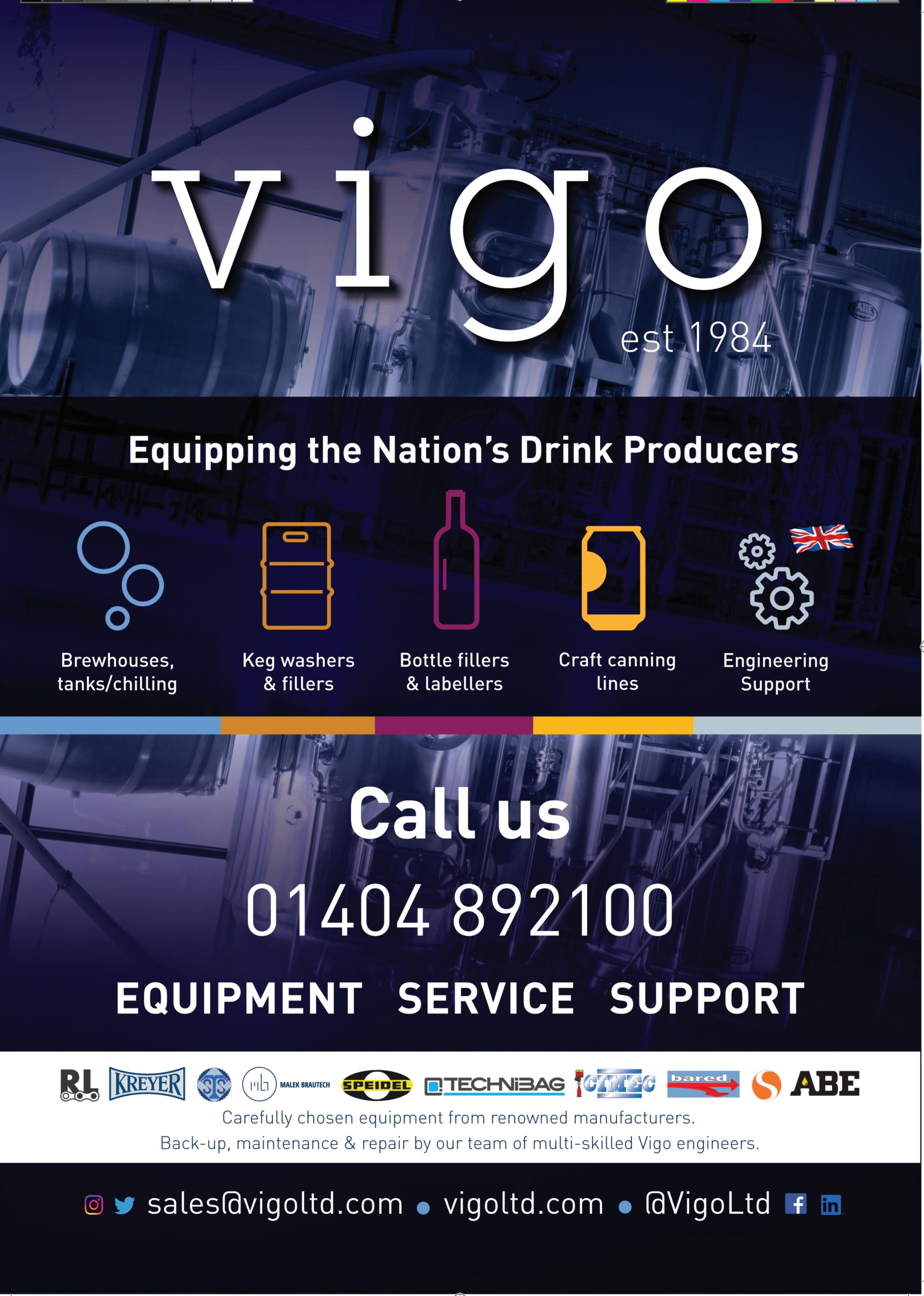
Award-winning, family-owned Wold Top Brewery has recently installed an automatic wraparound case packing machine supplied by packing and wrapping specialists, Atlanta UK.
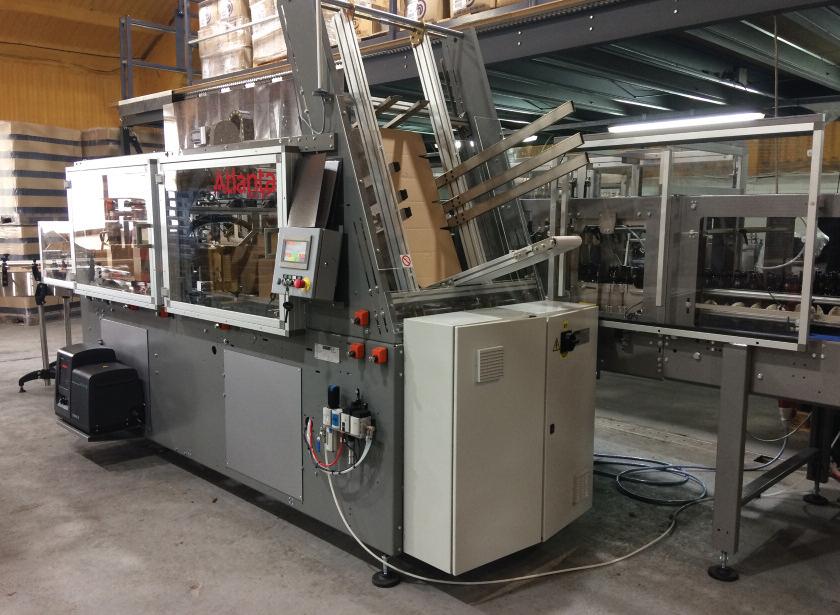
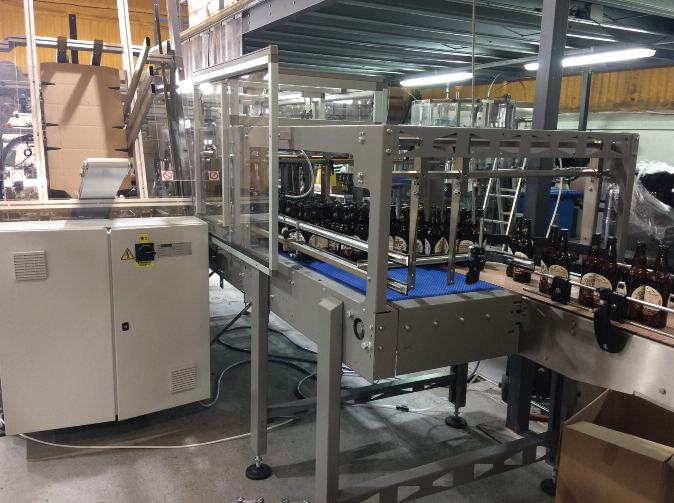
The investment, which replaces a manual case packing and shrink wrap operation at its site, has generated production efficiencies with scope to enable future growth. There are environmental benefits and a positive re direction of labour resources resulting in reduced exposure to repetitive strain injury
Using traditional methods to produce high quality beers from tits 600 acre farm high on the Yorkshire Wolds, the brewery asked Atlanta UK to provide an automated solution to replace the manual tray and plastic shrink wrap process being used to pack its beer products Atlanta UK introduced Wold Top to two similar microbreweries
packing automation
producing cardboard case packed product using the Atlanta Raffaello. Following several project meetings at Wold Top to fully understand the requirements, Atlanta UK was able to design a bespoke solution to meet the objectives
The Atlanta Raffaello machine is ideal for medium levels of production, automatically collating the loose product into pack format, then forming and gluing the carton around the product from a flat blank The Wold Top solution included an infeed accumulation conveyor to receive and buffer product from the production line. Further new conveyors to the outfeed completed the full solution As a result, Wold Top also accrues some key environmental benefits, including no plastic usage, improved recyclability of material and greatly reduced energy in its packing operation
“Installation of the Raffaello system was a very smooth process and the complete solution was commissioned on time,” said Alex Balchin, a director at Wold Top Brewery. “I can’t fault Atlanta UK for their service and support they provide a knowledgeable single point of contact and look for solutions, rather than focus on installing just a machine
“The equipment not only helps improve efficiencies, it has also made us move away from our previous process to complete carton board units, which is definitely a plus from a sustainability point of view ”
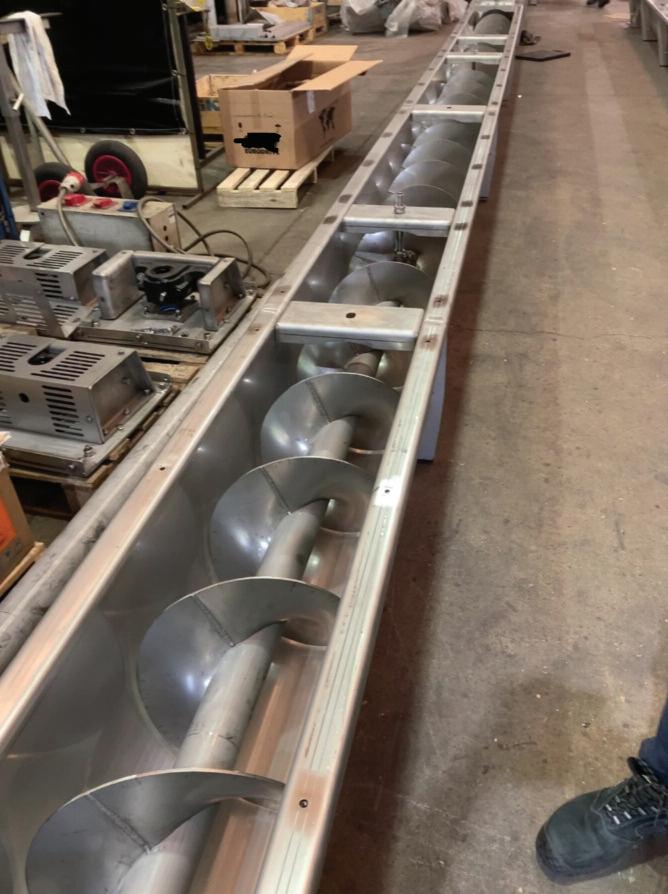
Atlanta UK’s Roger Cope added: “Wold Top Brewery was using an old method of fulfilment that was inefficient and restrictive to growth The right thing to do was to automate the process and at the same time, move to a full cardboard carton We took time to review a number of layout solutions which involved re working conveyors and retaining the option of their existing shrink wrap facility before we settled on a complete solution based around our Atlanta Raffaello case packing machine ”

Bulk Storage and Process Systems Ltd was selected by Diageo to replace two 23tph 316 grade stainless screw conveyors in the wet draff handling plant at a large distillery in Scotland
The two 350mm screw conveyors were designed to a very high specification to run 24/7 for 50 weeks of the year at a high temperature over 85°C The strip out and installation was carried out by BSPS fitters during the Summer shutdown in 2022 The install was completed on time and within budget, and the machines have

been running since installation without any issues
Bulk Storage and Process Systems undertake all types of work from changing a single machine to full plant design and installation
For more information about screw conveyors and other materials handling equipment or storage requirements please contact Bill Egerton
12 01483 202211 bill@bulksystems.co.uk For further information:
Top invests
case
SHOWC ASE Production Equipment We asked companies supplying the following products and services to let us know something about themselves l New or pre-owned production equipment available to UK brewers, distillers & cider-makers. l Companies that will install your equipment and work with you in commissioning and initial production, in addition to providing tuition. Screw conveyor to run 24/7 www atlantapackaging co uk For further information:
Wold
in


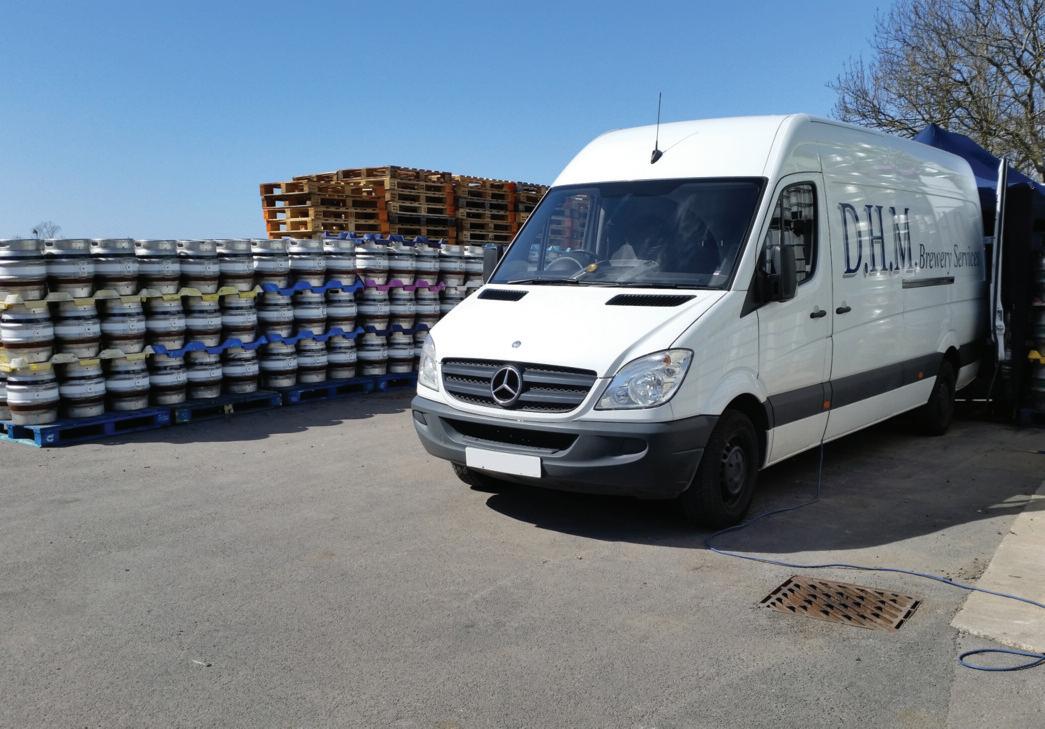
13 Cask and Keg Repair & Refurbishment Specialists l A Genuine Alternative to Cask and Keg Replacement l Repairs to casks and kegs of all sizes l We can supply refurbished casks too l Fast On-Site Turnaround l Competitive R ates l Over 60 years of Industr y Experience Please contact us for details of our other onsite ser vices. Head Office: 01283 740807 • Mob: 07952 152 099 Email: repairs@dhmbreweryservices co uk • Contact: Jason Miller Web: www.dhmbreweryservices.co.uk • Twitter: @DHMBreweryServ
Where’s Warmley and why? The answer is a can

St Austell Brewery, based in Cornwall, purchased Bath Ales in 2016 and set about building them a £7 million state-of-the-art production site that opened in Warmley in 2018.
And why Warmley? The latest investment in the Warmley site has seen the installation of a flexible world class canning facility The project was some time in the planning and Enterprise Tondelli as a specialist supplier of canning and bottling equipment was selected as one of the line suppliers Established in 1977 Enterprise Tondelli has made a name for itself for attention to detail, ability to provide alternative scenarios quickly and flexible working approach
The space allocated for the project was compact and so line design was a challenge Enterprise Tondelli provided a number of line designs which were optimised until revision 12 was selected allowing good materials access, third party equipment, common working areas and an efficient use of space whilst still giving an efficient operation A single common accessway reaches to the secondary packaging area with two packing machines opposite each other with one operator for both machines. A second operator has a work area off the central accessway for the self adhesive labeller and filler and lid feeder magazine A link conveyor allows the use of an existing robotic palletiser to maximise utilisation of assets On the project there were four other suppliers contributing to the overall success
Enterprise Tondelli supplied a high level empty can depalletiser manufactured all in stainless steel from its subsidiary Eurosistemi The unit can handle both layer sheets as well as recyclable plastic interlayers with a high level magazine A full length high level platform supplied by Enterprise allows full access to both the depalletiser and all empty can conveyors. Open electronic architecture allows Bath Ales to adjust the machine as required A VPN provides remote access for support, reducing total cost of ownership
Pressure type combiner for empty can conveyors feed into a triple channel gravity can cleaner Automatic divert
gates at the rinser inlet allow feeding of the various can sizes down dedicated lanes reducing change over time to a simple switch Can inversion is by easy openable “suitcase” type machined plastic can twists rather than conventional bars Conscious of its environmental footprint, ionised air is used for can cleaning saving around 8,000 litres of water per shift.
A fully enclosed can drier from Eurosistemi with adjustable drying nozzles removes any water prior to coding and packaging Empty and full can conveyors from depalletiser to packer were manufactured by Eurosistemi and supplied and managed by Enterprise Tondelli
A sixteen platform self adhesive labeller supplied by Enterprise Tondelli from manufacturer BRB Globus applies a wraparound self adhesive label to plain cans To prevent can crushing during this operation and to give an effective adhesion the cans are pressurised with air on the labelling carousel. Guillotine guards allow easy access to the machine which is also fitted with a VPN connection for remote assistance in real time
As a sustainable business the company wanted to ensure that smaller runs of non printed cans can be labelled with 'Wood Film' labels which were developed in conjunction with the large papermills of Scandinavia Tree oils are extracted as a by product of the paper making process and converted into a chemical structure which forms the basis of a white and clear Polyolefin Wood Film self adhesive material The label material performs the same as a standard PP self adhesive material and is highly durable, and can be supplied in clear or white faced material The BRB labeller is able to handle both these and other types of labels without any difficulties
The main Eurosistemi conveyor control cabinet is located out of the way on the high level platform so a local operator panel was located at low level adjacent to the labeller/filler well for easy access. Again to reduce cost of ownership and provide support in real time, a VPN is also fitted to this panel
Bath and St Austell have historically tended towards the turnkey approach which can sometimes lead to equipment compromises However they have been very pleased with the results this time by selecting some of the best suppliers in the industry who are specialists in their fields
Brewing Director, Georgina Young (pictured top) said, “Over the years I have worked with many suppliers in this industry although had not worked with Enterprise Tondelli before but found it a positive experience Their continuing attention to the project throughout the process and unfailing willingness to adjust to our requirements has been refreshing As the conveyor supplier for the project, Enterprise became key in the management of the project They dovetailed with hard working and dedicated St Austell and Bath Ales teams and other contractors on site Thank you ”

Craig Wilson Managing Director of Enterprise Tondelli stated, “It was a great pleasure to work with Bath Ales and the team who were very collaborative Despite some challenges given by Covid, customs, shortage etc the final result is a tribute to Bath Ales and St Austell and we look forward to working together on any future projects that may arise I now know where Warmley is and what it is really famous for ”
For further information:
www.enterprisetondelli.co.uk info@enterprisetondelli.co.uk

14
SHOWC ASE
Production Equipment

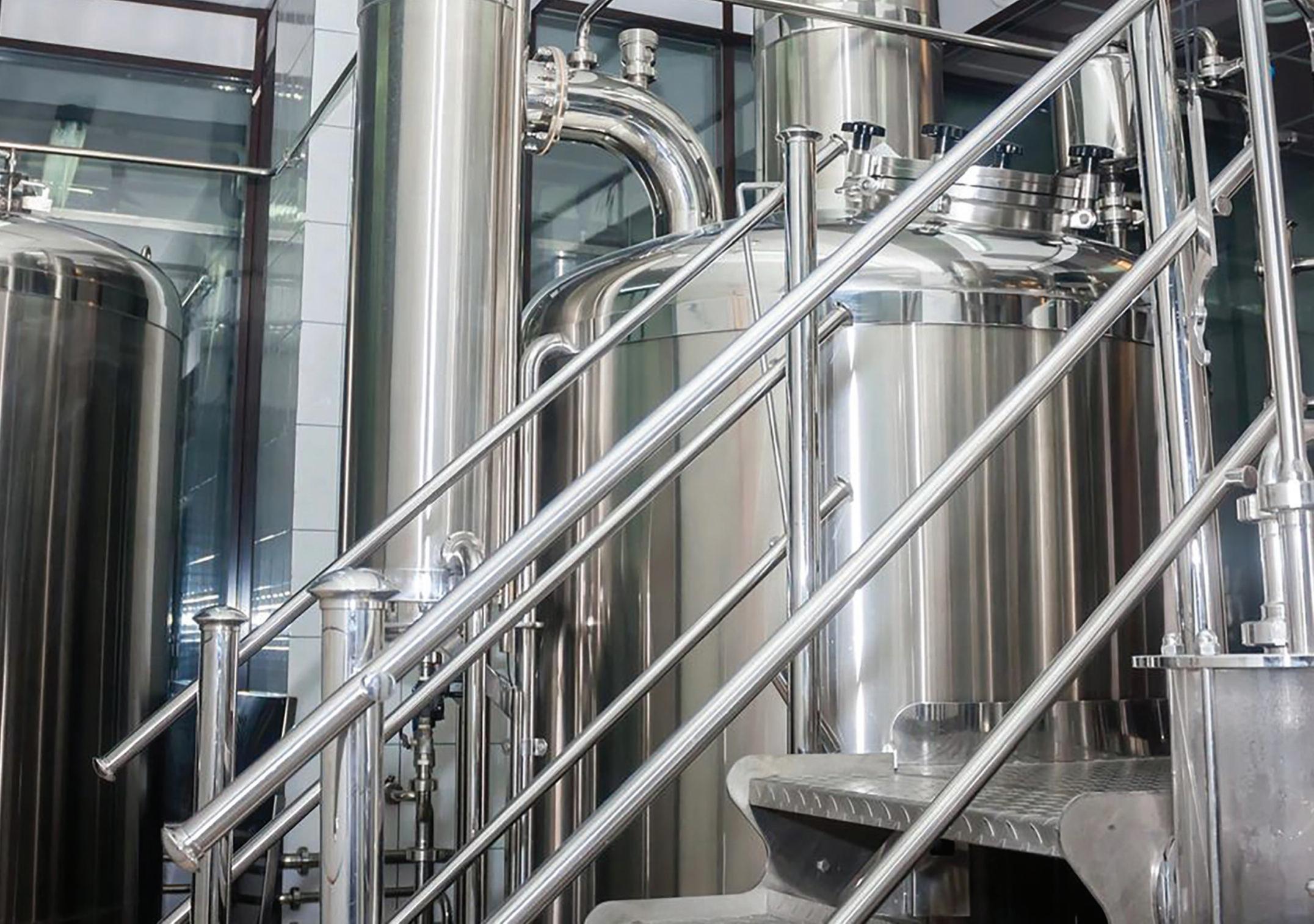
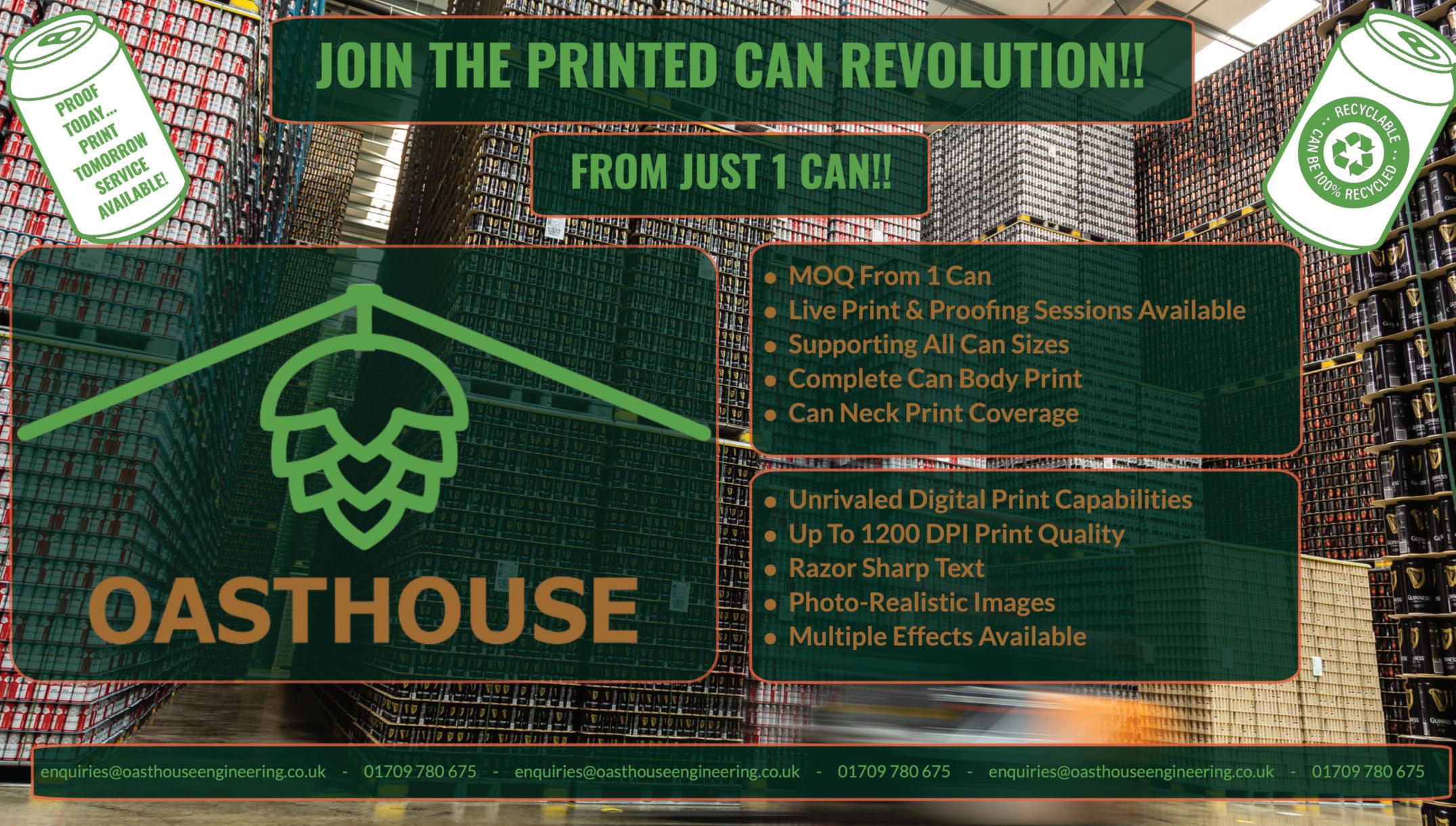
15
Carbonating and kegging – the whole story
As a manufacturer of stainless-steel vessels for more than 45 years, Moeschle is also experienced in the process demands required from a system (as pictured right).
So the company was delighted when the Chantry Brewery team asked Moeschle to work with them from, initial design, layouts and selection of equipment through to project management, installation and commissioning and handover of the system.
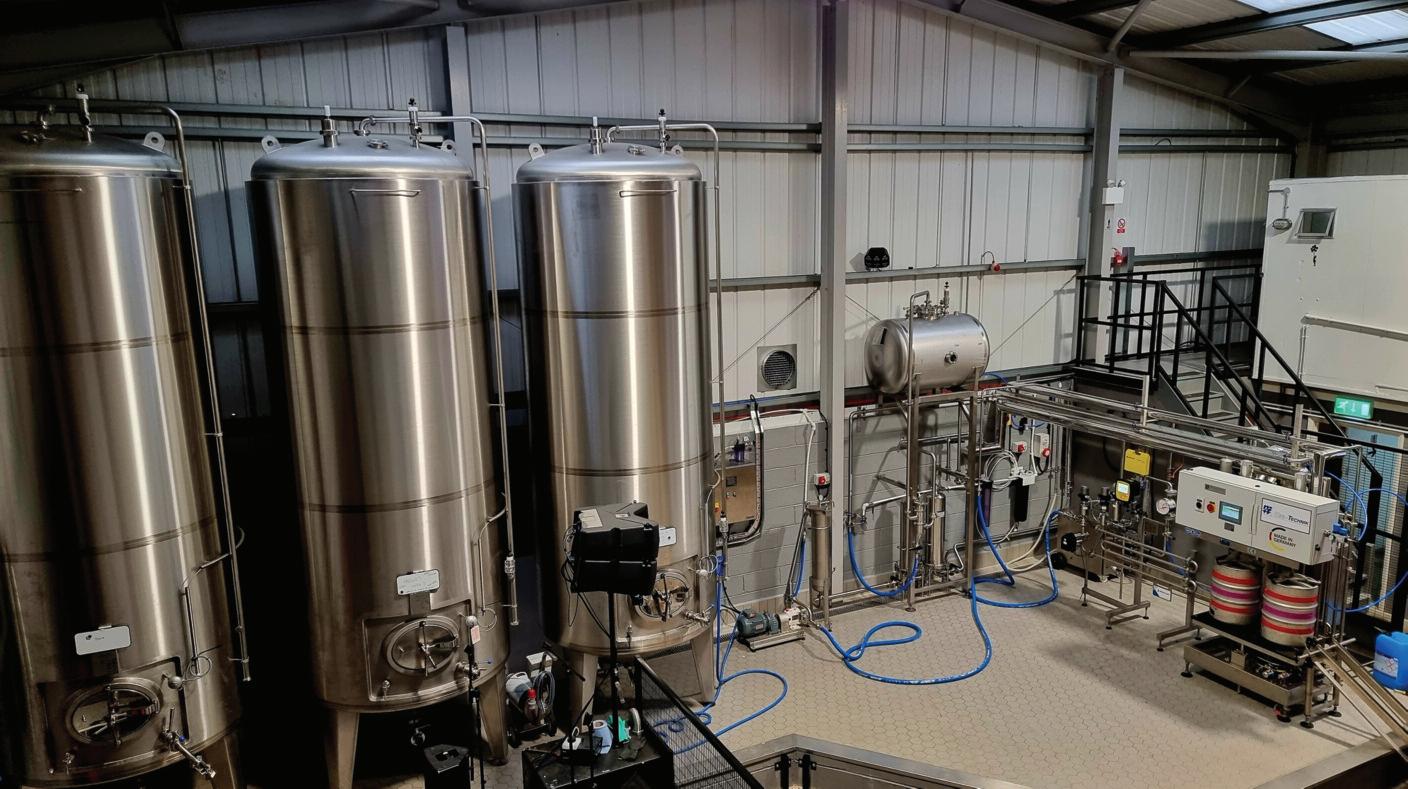
On the left of the image are three Dual Purpose Vessels (DPVs), which are just over 7000L each in capacity With a design pressure of 0 5 bar, they bring the flexibility to be used as both a fermenter and a conditioning tank Each vessel is connected to a central control panel, which allows their live temperatures to be checked and adjusted, as well as the pump speed to be altered, to increase or decrease the outlet flow of beer Upon exiting the DPVs, beer undergoes a 3 stage filtration process, ensuring consistent clarity and the desired bright colour
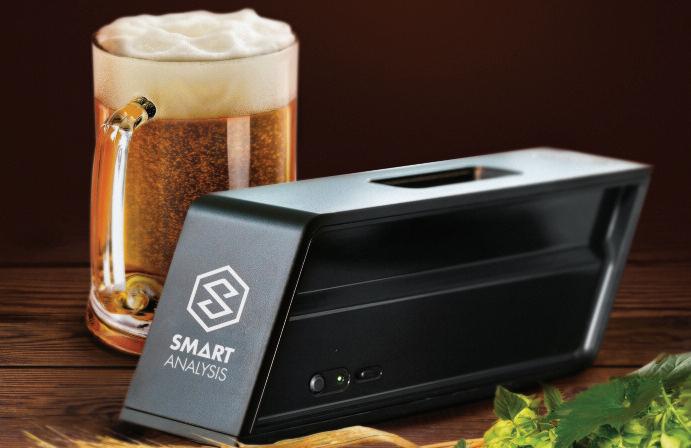
Whether a higher or lower level of carbonation is desired, all the beer passes through the carbonator, which can add up to 6g of CO2 per litre Moeschle worked with Pentair, who
designed a carbonator capable of carbonating at the remarkable level of 100 litres per minute The system is fully customisable, meaning that the correct CO2 level can be adapted for each brew and stored for repetition This prevents, for example, an over carbonated ale from coming to a head, as a set CO2 level is achieved every time

Carbonation is followed by storage in a 600L pressure rated buffer vessel, which gives the adaptability for brewers to keg at their desired pace The pressurisation of this vessel ensures that the CO2 remains in suspension before beer reaches the kegging process The kegging
Smart Lab Analysis from Vitikit
Vitikit has teamed up with DNA Phone, an Italian tech company that offers an innovative solutions to the food and beverage industries. In particular, the company develops and markets analysis tools for the quality control of wine, cider and beer.
At Vitikit, we are excited to present Smart Analysis, an equipment that revolutionises the world of rapid analysis and diagnostic tests It simplifies quality control and allows our customer to improve their product day after day
Smart Analysis is a portable, accurate and reliable enzyme analyser The system uses patented fibre optic and LED source technologies, which makes Smart Analysis a compact and rugged spectrophotometer that does
not require any particular maintenance DNA Phone has developed a remote diagnostic system to check whether your device is working properly
The Smart Analysis comes with an app that can be downloaded directly on to your mobile or tablet The APP is a simple and intuitive to use application for any type of user. It allows our customers to manage all the analysis operations in a guided way The equipment automatically identifies the type of analysis via the QR code of the reagent kit
The results from the analysis are saved on the app, which can be downloaded for further analysis in a convenient format It’s possible to process the data anytime and anywhere, using this information to obtain, over time, the historical record
machine was made by M+F and achieves a speedy fill rate of 50L in 40s, which, along with cleaning time, allows around 30 kegs per hour The resourceful and hygienic built in keg cleaning method is steam sterilisation and it has proven to be very effective
Commented Mick Warburton, Co owner / Director of Chantry Brewery Limited, “We have worked together with Moeschle from setting up the brewery and we find them great to deal with and always helpful and knowledgeable ”

For further information:
www.moeschle.com/en
of your product; thus increasing its usefulness to help with decision making.
DNA Phone reagent kits are designed to simplify the analysis process, making it accessible for users of all knowledge levels The key to this is minimising the number of manual operations required. The use of disposable cuvettes, with standard optical paths that are pre filled with the reagents, helps to create clear, reliable and effective testing
For further information:
16 info@vitikit.com
SHOWC ASE
Production Equipment
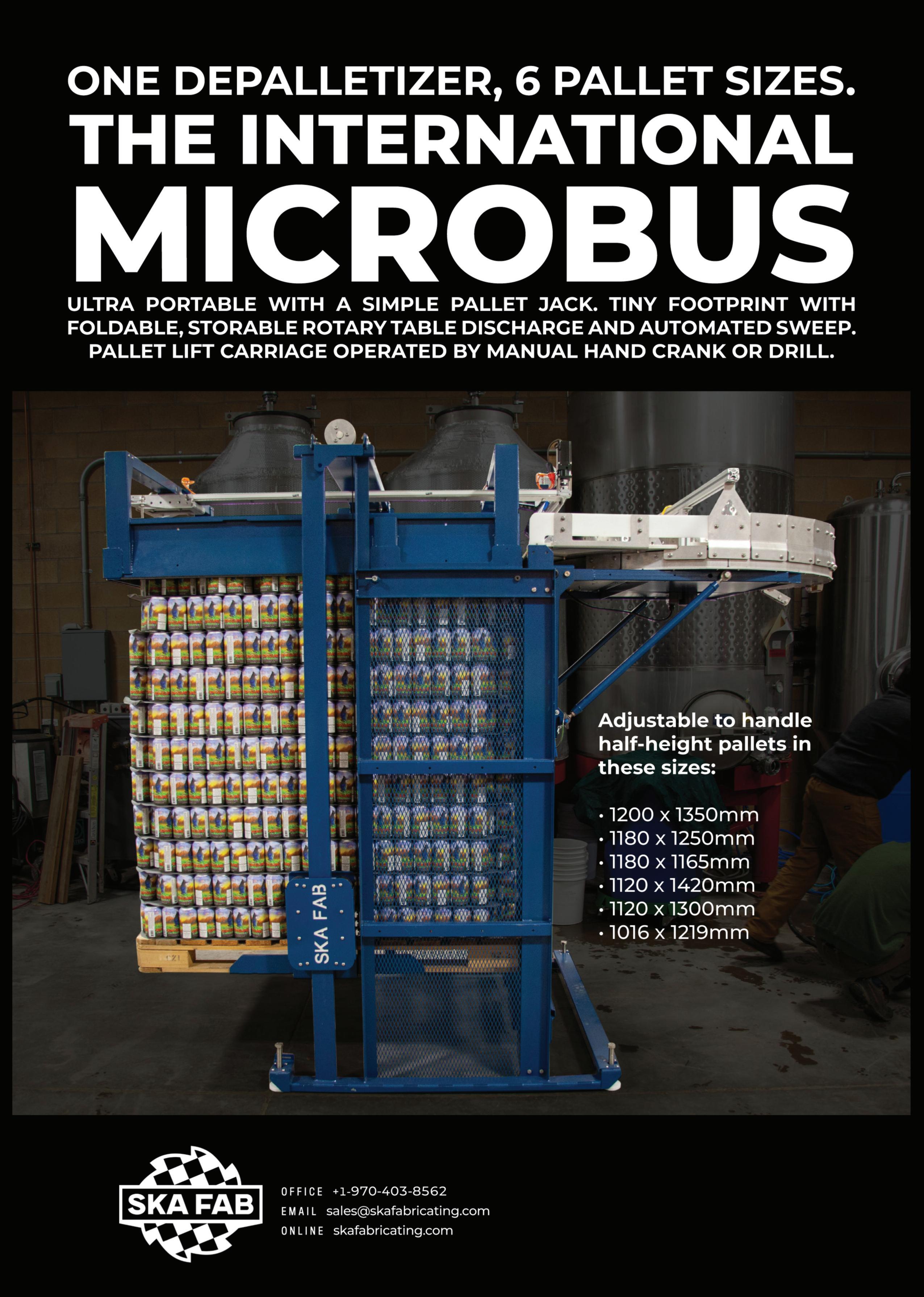
Peaceful co-existence on the bar, a new age of choice for the drinker and a dose of commercial reality for brewers
Says David Smith of Brewing Services Ltd


For anyone reading the wider press and brewing periodicals of late it may not be immediately apparent that we have witnessed a complete sea change in respect to the selection of styles of beer available on the bar.
Recent press articles might suggest cask is doomed whilst others seem to suggest a revival of ‘traditional’ beers and cask is back However, this isn’t a revival as such because cask beers have never really been away, they simply weren’t as easy to source during Covid and fell out of favour with the industry pundits writing the column inches week on week Whilst they have been busy telling us about the latest canned beers from this new brewery or that new brewery, they continually overlook the many great beers that sell many thousands of litres week on week What has become apparent in recent years is that beer in all its formats is acceptable, and more than ever it’s the drinker ’s choice as to what style or format of beer he or she wishes to drink on a night out The recent GBBF, with its many bars and beers styles on show, typifies this new approach to both selling and producing beers
More importantly however, the penny has finally dropped for many craft brewers that it is actually a commercial world out there and the beers you produce need to appeal to a sufficiently large audience for a brewery to survive This means not limiting the types of products you sell. The downfall for many brewers is in thinking that whatever beer they produce is good beer, often given
this impression and buoyed up by the odd favourable mention in a beer review Then, when they fail to find a sufficiently large market for their beers, that is somehow the fault of the uneducated consumer One well known brewer in the north would continually boast to anyone who would listen about how good his beers were right up until the point he went out of business A little more humility on his part and looking around at all the beers that were selling well around him and keeping his beers off the bar, might have made him realise the customer is always king
For the brewers with longer pedigree and a better understanding of the beer market, breweries such as Fyne Ales, Saltaire and Brew York are bringing in their new, more exotic flavoured beers, alongside a core of high quality keg and cask beers thus providing a more diverse offering with wide appeal However, it is still these core beers which week on week actually pay the wages, whilst the other more esoteric products simply grab the headlines and provide a temporary talking point.
In a major reversal of attitude to traditional beers, brewers such as Brewdog and Cloudwater, who once said ‘never ’ to cask beers, are finding producing cask beer is now quite appealing, as well as profitable A sudden awakening to the fact that all beer styles have a following and to overlook any sector of the market is a complete own goal Simply sticking to one form of beer packaging is neither a sensible nor commercial stance on which to build a successful business
The divergence of packaging formats that once separated pubs into either craft keg and can verses traditional cask or bottle venues is quickly coming to an end What we are witnessing now is greater convergence with canny landlords happy to have cask alongside keg on the bar with bottles or cans sitting comfortably side by side in the fridge
Craft brewers who might once have seen cask beers, along with CAMRA and The Great British Beer Festival, as outdated dinosaurs with keg and can and Craft Beer Rising being the only true place to market their beers, should now be rethinking their beer portfolios and their approach to marketing their beers
We will perhaps see more of the new craft brewers that are starting up, or at least the commercially minded ones, viewing all drinkers as a potential market and this may well save breweries blessed previously with such narrow product tunnel vision from failure before they have started This exciting realisation that we can have peaceful co existence of all products on the bar is ushering in a new age of greater choice for the drinker whilst throwing a lifeline to craft brewers in these tough trading times, ensuring a greater survival rate thanks to a welcome dose of commercial reality

New potentiometric sensor ‘raises the bar
Sensor specialist BAUMER continues to develop its awardwinning IO-Link sensors, with the latest example being the CombiLevel PLP70 level sensor, designed to excel in applications with high grade diversity and frequent media changes such as those occurring in the beverage, brewing and other similar liquid handling processes.

The key benefits of this innovative potentiometric sensor make continuous level measurement easier and more flexible including the ability to automati cally adapt to a wide range of media Typical applications include precise monitoring of process levels in feeding containers, storage and buffer tanks and fast changing levels in filling lines
Operators will also appreciate the easy monitoring and control of the sensor via the proven Baumer display which
includes a background changing colour and effectively provides all the required information at a single glance, even from longer distances Functions of the touch display include temperature, pressure and conductivity enabling quick and convenient operator intervention directly at the sensor display www.baumer.com
18
SHOWC ASE Production Equipment
www brewingservices co uk For further information:
For further information:
’



19
Brew-School courses are truly international
Says Chris Horne, Director
We have just finished running a two-week Trainee Brewer Program that has included hosting four trainee brewers from Croatia. It never ceases to amaze me at the sheer international nature of our brewing, wine making and distilling courses.
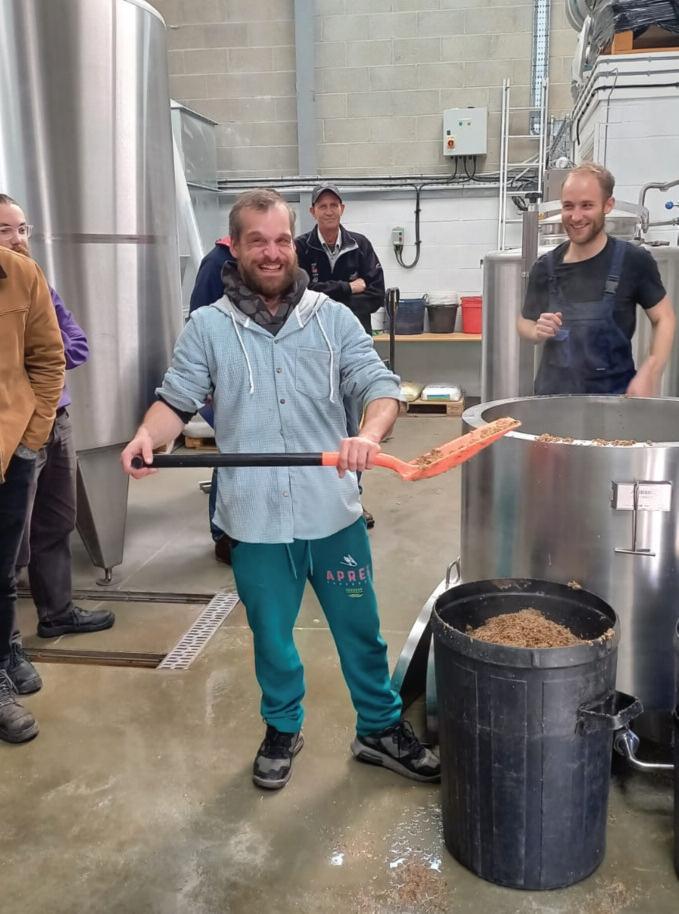
We regularly welcome students from all corners of the globe including Australia, America, Hong Kong, India as well as right across Europe However, on a trip just down the road from our premises in Bakewell to Brampton Brewery to take part in a brewday and following a lunch time sampling of one of their excellent cask beers, Jerusalem, it struck me that, despite the international nature of beer, what an amazingly unique British product cask beer is No other country brews beer like it!
Intensive Trainee Brewer Program 14 Days of Brewing Insights and Knowledge
Our trainee brewer program running over 14 days is intended to provide the foundations for people looking at
of Brewing
working or entering the craft beer industry with at its core the syllabus of the IBD’s GCB. In addition we look at beer recipe development, the all important cask beer management, along with drilling down into the science of brewing and the importance hop based compounds play in the emergence of big hoppy flavoured IPA’s with our Hop Masterclass run with Charles Faram
Brewing Roots
Having run our craft drinks and brewing courses for 10 years I can report that we have many success stories where we have assisted a whole new generation of brewers to keep the art of traditional cask beer brewing alive. This was crystalized very recently for me when I returned to my home town of Rugeley to visit the Vine Pub, a 200 year old wet led pub in the heart of this market town The owners Ollie and Chris attended one of our first GCB based courses back in 2016 and they are still only in their 20’s so young!
They have now reinstated a microbrewery in the pub and are
producing a range of cask beers As I sat in front of a roaring open fire with a pint of their amazing best bitter, in the company of my oldest school friend, I enjoyed a cracking evening
If there is such a thing of legacy then, renewing and reinvigorating another generation of brewers and breweries has been a privilege
For further information:
info@brew

Campden BRI launches ‘Campden Learning’

Campden BRI, a leading global training provider to the food and drink industry, has launched its innovative ‘on demand’ e-learning platform, Campden Learning

The new platform brings together deep industry knowledge and expertise using dynamic digital tools to deliver an interactive and engaging training experience With Campden Learning, participants can enjoy first rate training in any location they choose and are able to play and pause their learning to suit their professional and personal commitments
Campden Learning training manager, Jo Rathkey comments, “Campden Learning is a fantastic example of the many initiatives that Campden BRI is developing for the food and drink industry
“The nature of our sector means that businesses cannot afford to be left behind on information, knowledge and
the latest thinking around a number of topics We know the pressures the food and drink industry must manage and that time is often scarce as a consequence, so we designed Campden Learning to offer a practical solution to time pressured employees who need to fit the demands of their profession around their learning Our new platform allows participants to dip in and out of their courses whilst easily keeping track of their progress.
“In addition, we know businesses require assurance that their employees are receiving the very best high quality training available, with minimal downtime and optimal results to maximise their training budgets. By choosing training from the market leader, via the Campden Learning platform, they know they can trust the quality of the information and its delivery Adopting on demand e learning means that no matter where your workforce is, whether in
one location or scattered across continents, all of them can benefit from the learning provided by the market leading experts in food and drink industry training.”
Campden Learning content is developed by Campden BRI’s experienced subject matter experts to produce audio led bitesize sessions using a combination of video, animation, graphics and interactive tools, ensuring an engaging experience for participants
For
20
www.campdenbri.co.uk
SHOWC ASE Production Equipment
further information:
school com
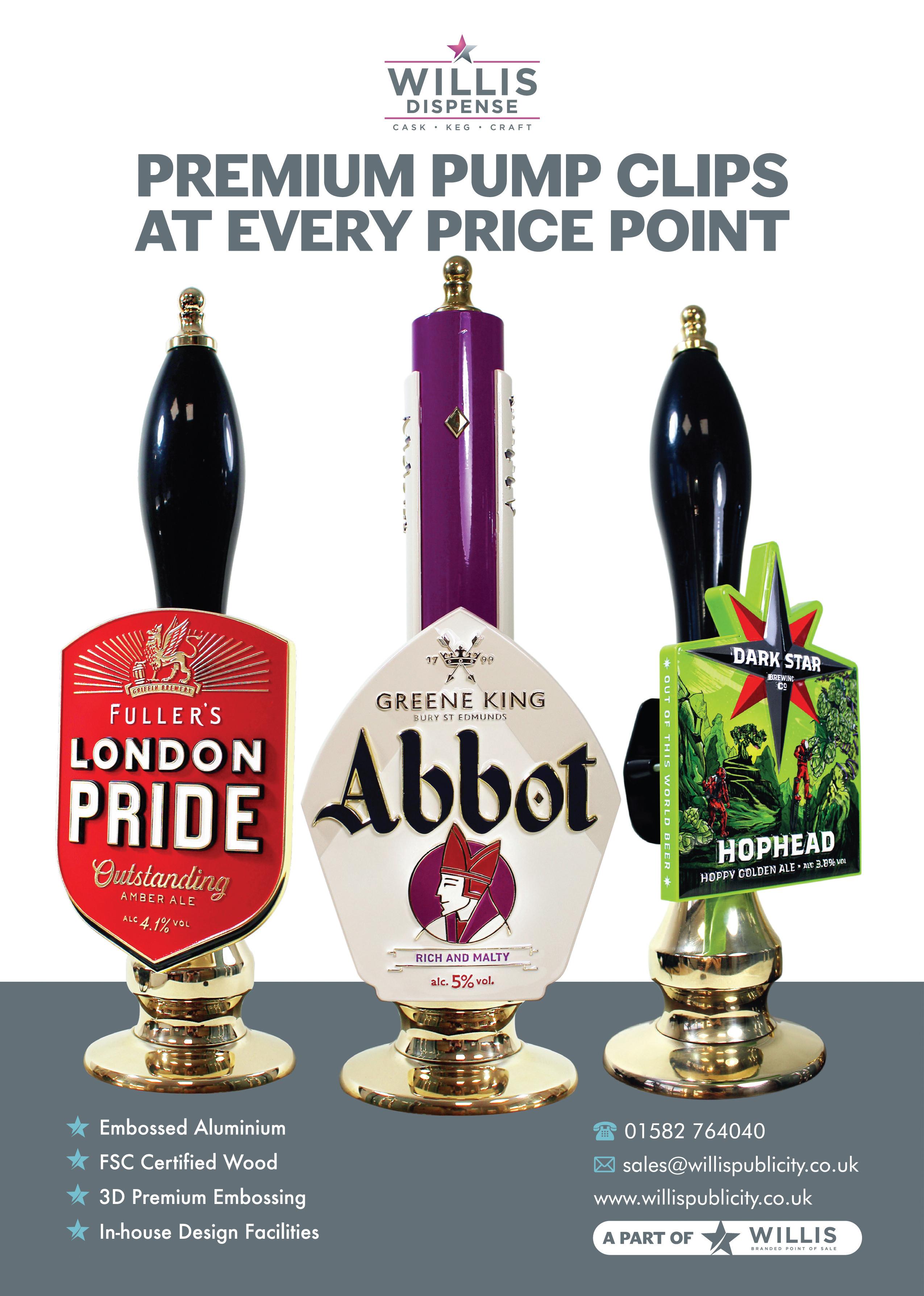
CO₂ - Protect your pocket and the planet
In recent years the price of CO₂ has gone up exponentially, with some breweries seeing over a 600% increase in recent months. Lest we forget the shortages from 2018 due to two factories going through routine maintenance at the same time, and CO₂ being in such short supply. It became headline news around Europe
CO₂ has therefore been, for some time now, one of the most volatile components for many craft brewers’ businesses Without it many brewers are unable to meet the demands of their customers and yet, as we all know, CO₂ is a byproduct of brewing, something that all the major brewery’s harness to remove the turmoil created through a precarious supply and demand structure within CO₂ generation
Brewery support
A Yorkshire based equipment specialist is helping brewers manage cost-efficient production and maintenance amid the challenges of a global energy crisis.
Collective Motion Brewing has a 1,000 sq ft base in Bradford which will operate as a warehouse, workshop and R&D centre for the supply of a range of equipment, automation and services which are designed to improve quality control, reduce running costs and minimise waste Its portfolio includes newly developed and upgraded systems alongside refurbished machinery and a fast diagnostics and repair service for the brewing, distilling, and cider making industry
Director Dominic Smith said: “With our passion for the brewing industry, we identified a need for a service to help smaller brewers survive by servicing essential machinery to keep them in operation and helping to source high quality second hand equipment We hate waste and love breathing new life into old non working units ” cmbrewery.co.uk For further information:
Earthly Labs from the USA and Dalum from Denmark are two companies leading the way in this new and exciting technology. With small footprints and a tested purity above 99%, these new CO₂ capture companies are set to pave the way for many craft brewers to finally take control of their CO₂ costs and remove their reliance on third party supply
Kim Dalum, Managing Director of Dalum Equipment, highlights; “Dalum Beverage Equipment has invented and tested technology for craft scale recovery of CO₂, which will help prepare your brewery for the future, by allowing you to secure your CO₂ supply from your own natural source and improve economy while reducing your CO₂ emissions by 200% for every Ton recovered All component parts are stainless steel with no oil or chemicals in contact with the CO₂, meaning that the recovered CO₂ is not only food safe, but also 99 98% pure The Dalum machine is exceptionally simple to use and in fact once running, is fully automatic, taking away the stress from brewers and allowing them to save money and the planet through pre programmed automation ”
Eddie Gadd, Owner of Ramsgate Brewery, which has a Dalum CO₂ Recapture unit, used the phrase “This unit is pretty awesome” when talking about his equipment, and “the whole system is extremely reliable, very efficient and produces first class quality CO₂ ” when asked about the cost of running the capture technology In fact, Eddie has already ordered another unit for one of his other businesses
However, and there is always a ‘but’ when it comes to new technology, to buy these machines, even at the craft beer level, the outlay is significant. For a single 15kg machine with a 2T storage tank and associated collection stations, vaporisers and safety valves, the capital cost is above £100,000, which is where Ninkasi Rentals and Finance have stepped in to support craft brewers
James Lewis, Managing Director of Ninkasi Rentals and Finance, explained, “We have been watching CO₂ capture technology for the last 3 years, and for us it seemed irrational
that breweries were being forced to expel CO₂ produced during fermentation to then buy it in to complete packaging We believed that this was not only wasteful but costly, and something that as an industry we should try and alleviate
“We were introduced to this craft brewery technology in early 2022 and have since been working to understand the principles, the benefits and of course the realities of regulations around this technology. After working closely with the manufacturers and learning from brewers who have already brought this technology to the UK, we strongly believe that we are not only able to offer financial support to our industry, but also add value to our customers, acting as a consulting bridge between craft brewers and the manufacturers ”
Ninkasi is currently offering a free installation survey to enable brewers to get a more in depth understanding of what the technology can do to assist their brewery’s growth
With Ninkasi able to offer rental or finance options on the CO₂ capture technology, cash flow is protected while savings are generated


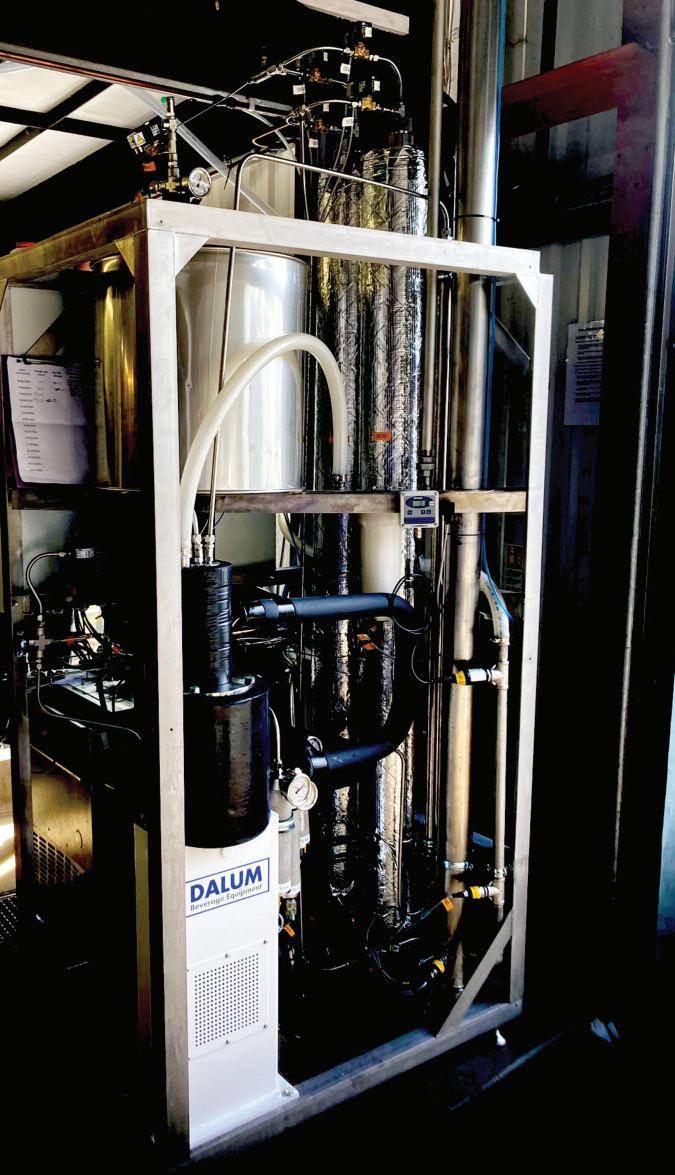
22
Evans 07741 846650
SHOWC ASE Production Equipment
Paul
Paul@ninkasirentals.co.uk For further information:

£6.1m funding boost to accelerate digitalisation among SME food and drink manufacturers
A trailblazing programme that has backed 2,500 manufacturers to adopt new digital technology and skills to create growth and jobs has secured £6.1m funding to continue for three more years
Made Smarter ’s adoption programme in the North West has helped small and medium sized companies start their digital journey by providing them with specialist advice and a digital roadmap to help them select the right approach, level of investment and tools for their business
More than 250 of them, including dozens in the food and drink sector, have invested in new technology, ranging from software and sensors to robotics and extended reality, to become more efficient, build resilience, increase their productivity and grow sustainably
As a result, Made Smarter supported

manufacturers are set to create 1,250 new jobs, upskill almost 2,300 existing roles, deliver an additional £176 million in gross value added to the region, and help the UK meet its net zero target by 2050
Now with a further £6 1m funding from the government, Made Smarter can accelerate its drive to support hundreds more SME manufacturers to embrace the industry 4 0 movement
Meanwhile, as a result of the trailblazing work in the North West, the national roll out of the Made Smarter adoption programme has continued, and now includes the West of England and East Midlands They join the North East, Yorkshire and the Humber, and the West Midlands regions
Alain Dilworth (pictured), Programme Manager for the Made Smarter Adoption Programme in the North West, said: “I am delighted that the

Government has recognised the extraor dinary impact that Made Smarter ’s adoption programme is having on digitalisation of SME businesses and the adoption of Industry 4 0 technologies in the North West whilst continuing to fund our work for the next three years
“This new funding means we can renew our ambition to reach out to the region’s SME manufacturers to connect them to the tools that will make an everyday difference to their businesses, build resilience and enable them to keep up with a fast moving industry ”

For further information:
www.madesmarter.uk
Jobs saved as Quantuma secures the future of Boss Brewing Company Ltd
Business advisory firm, Quantuma, has rescued Swansea based Boss Brewing Company Ltd through a pre-pack sale The administration was led by Gary Thompson and Michael Kiely, both managing directors at Quantuma.
An award winning brewery, Boss saw early rapid growth and success following its incorporation in 2014. It built an impressive brand and a firm customer base, with a turnover of nearly £700,000 in 2020
Following the effects of Brexit on trade with the European Union, coupled with the Covid 19 pandemic and the national lockdown, the company saw its sales and profits cease almost overnight With the cost of living crisis
affecting businesses and individuals nationwide, customer demand for products reduced while trading costs increased, causing the company significant financial distress
The successful sale has now ensured the survival of Boss Brewery, and its single factory site will continue to operate as a result Its eight members of staff will continue to keep their roles as no redundancies have been made.
Gary Thompson, managing director at Quantuma, said: “Our priority is to achieve the best outcome for Boss Brewery and the pre pack sale was the way to ensure its longevity The company faced a barrage of obstacles, but, not only has the sale saved the brewery, but ensured the continuation of jobs for all eight employees It is rewarding work to
help keep a previously successful enterprise running, and we’re proud to have played a part in the journey of this fantastic Welsh brewery ”
Quantuma is a leading business advisory firm which works with businesses at the key milestones, helping them to take advantage of opportunities and overcome a range of operational and financial challenges, enabling them to achieve their business objectives and ambitions. The company has specialist expertise in restructuring and insolvency, financial advisory, corporate finance, forensic accounting and investigations, cross border asset recovery and creditor
24 SHOWC ASE Business Services
services
www.quantuma.com For further information: We asked companies supplying the following products and services to let us know something about themselves l Insurance, financial and legal services, recruitment, business training and other business services l Hardware & software designed to smooth administration and production flow l Drinks wholesaling and distribution, plus associated sales consultancies and websites
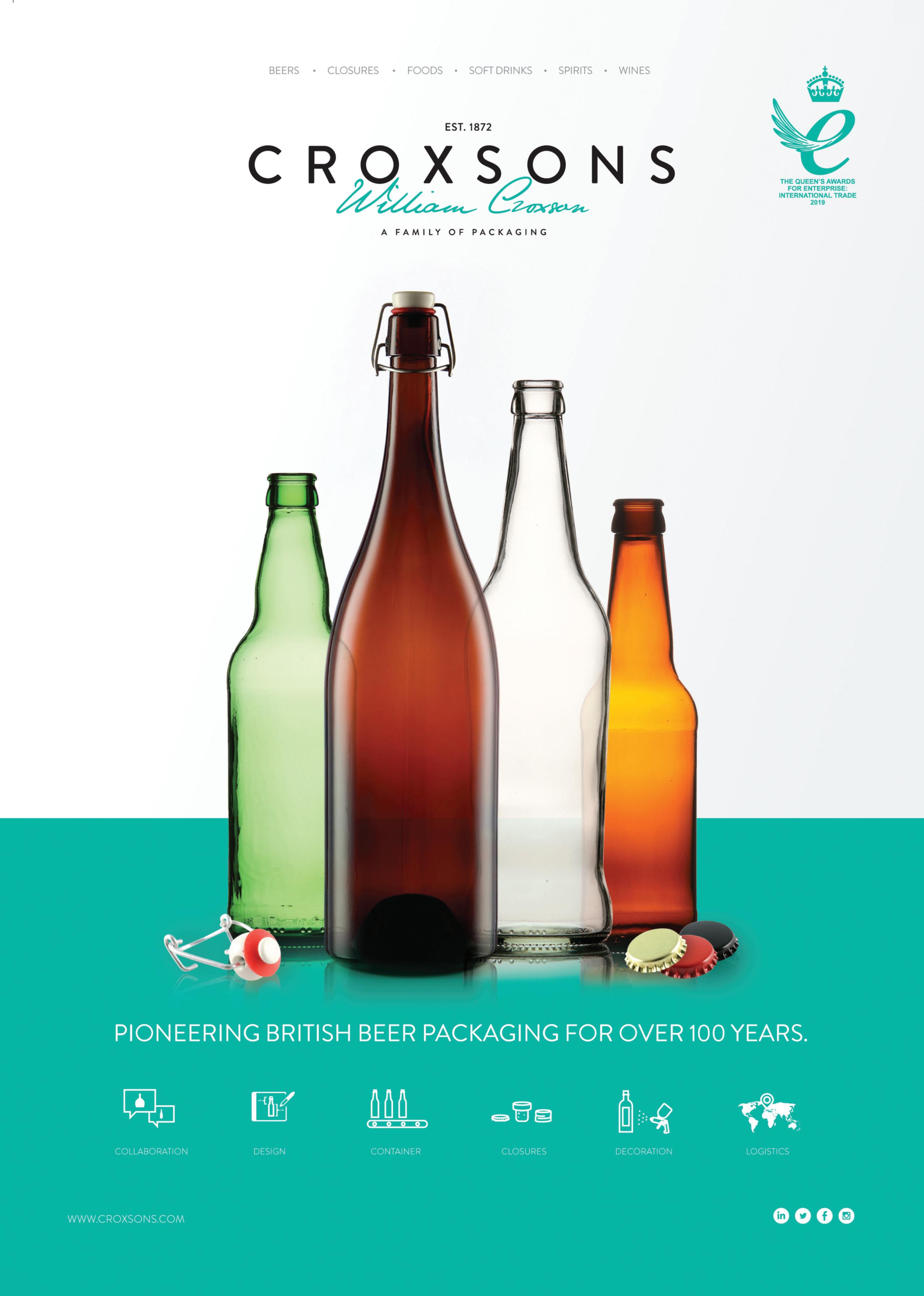
What to look out for when taking out a new insurance policy for your brewery
There are just over 2,400 breweries in the UK alone, according to the latest figures from Statista, a number which has risen by more than 60% in the past four years But like any other fully functioning business, breweries need to be properly insured to protect themselves from potential liabilities

Russell Scanlan, leading independent insurance broker for more than 140 years, offers expert insight on the ins and outs of specialist policy packages
Specialist brokers and dedicated teams hold the key to effective insurance cover
Choosing a dedicated team that has access to a panel of insurers ensures that you are offered the right support and guidance for your specialist cover Brokers and teams that take the time to work closely with you to understand your business will help you to tailor a
package with all the right ingredients, developing a policy that gives you peace of mind
The one-size-fits-all approach rarely works
It’s important to remember that a one size fits all approach will never provide you with the comprehensive cover that you and your business need Breweries are often involved in so many different activities, whether it be attending trade fairs, brewery tours or shipping goods overseas, that tailoring a package and speaking to an expert helps to ensure your business is fully protected against any future issues
Never a glass half empty when you work with specialists
Taking out multiple insurance policies under one trading business has the potential to complicate the insurance recovery proceedings immensely, and possibly even undermine certain terms.The relation of "other insurance"
clauses, allocation schemes, and the practical impacts of interacting with multiple insurers can often leave breweries with some difficult questions. This is why it is always advisable to work with a specialist team who understands the insurance industry
For further information:

www.russellscanlan.com Tel: 0115 947 0032
Cotswolds Distillery is set to increase production following £3m funding from Santander UK
Cotswolds Distillery has unveiled plans to ramp up its production of English whisky and gin with the support of funding from Santander UK
The Shipston on Stour headquartered drinks company is on track to increase its annual alcohol production from 125,000 litres currently, to reach a capacity of 500,000 litres, having built a new distillery at its Cotswolds site which was due to be commissioned in the autumn
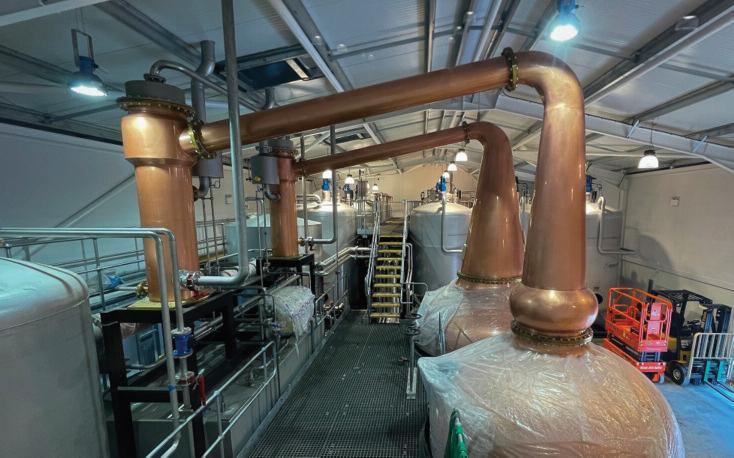
Santander UK has provided Cotswolds Distillery with a £3m funding package to support business liquidity, enabling it to lay down additional stock to meet future demand, improve production efficiencies, and bolster its status as an English whisky producer.
Cotswolds Distillery was established in 2014 by founder Daniel Szor and its inaugural Signature Single Malt was released in 2017 Cotswolds Distillery
has also developed a range of award winning super premium gins and liqueurs to supplement its product range In the UK, its Cotswolds range is sold in leading supermarkets, bars, luxury hotels, restaurants and direct to consumers through its visitor centre, three stores and online business

With UK sales well established, Santander UK is supporting the business with its export growth strategy, building on existing sales in the US, France, Germany, China and Australia, as it works toward doubling its overseas sales over the next few years Cotswolds Distillery is targeting annual sales growth of 15%, with plans to achieve £25m turnover by 2030 as it grows its business, particularly in export markets It currently employs 65 people and plans to hire new staff over the next few years in line with growth
Daniel Szor, Founder and Executive Chairman at Cotswolds Distillery said:
“I am delighted that we have had the support of Santander UK in enabling us to maximise our sales potential, allowing us to meet growing demand from the single malt consumer in this luxury category that is forecasting strong growth globally ”
Chris Evans, Relationship Director at Santander UK, said: “Santander UK has a dedicated specialised whisky sector team as well as expertise and resources to help UK businesses in the sector expand internationally ”
For further information:
If you’d like to arrange a chat with one of our specialist team, see info below www.santander.co.uk/business
26
SHOWC ASE Business Services

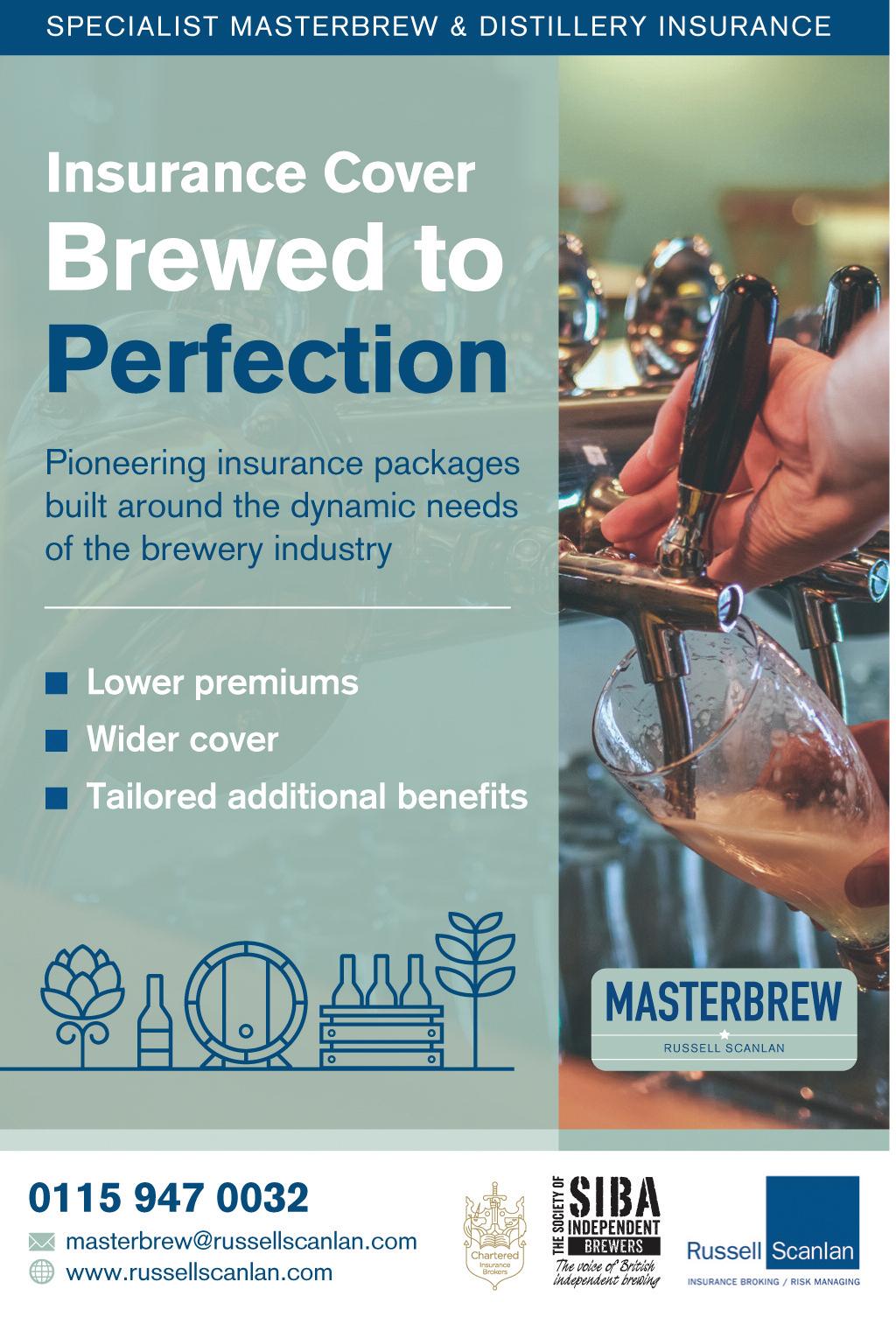

27
New analysis shows a distinct shift
A new piece of analysis from corporate finance house, Oghma Partners, has looked at early stage investment in the UK Food & Drink Industry between 2012 22 and how it has shifted to more later stage funding. This progression is viewed by the company as a healthy reflection of businesses maturing and investors backing perceived growth winners
2012 2017 saw £312 4mn invested in 304 companies over 583 investment rounds, and 2018 2022 (ytd) funding increased to £1 8bn, a six fold increase in value compared to the prior period The total number of companies which received investment in the latter period was 449, with 1017 capital raises, highlighting that each company is having more and larger investment rounds

Global mega trends such as the explosion of interest in craft spirits is reflected in data for venture investments recorded since 2012 Over the last decade, the alcoholic beverage sector has seen almost 3x as much volume of investment compared to any other sector, as well as the highest total value of deals
Whilst crowd funding activity can garner a lot of press interest as a source of funding, its funding role is less than that of seed/angel investors and early stage venture investors Government backed enterprises i e , Innovate UK and Scottish Enterprise have been amongst the most active backers of early stage food and beverage businesses
Mark Lynch, Partner at Oghma Partners, said: “Whilst 2022 appears to have seen investment momentum continue, we believe that with a changing risk dynamic the appetite for all venture investing will wane Layered on top of this potentially decreasing interest from investors is a cost of living crisis that appears to be challenging some D2C business models.”
Shakespeare Martineau launches expert food and drink sector group
Law firm Shakespeare Martineau has launched a new food and drink sector group to provide a full-service legal offering to support the industry, which is valued at more than £100 billion
Offering tailored advice and a one stop shop to the food and drink market, the group covers commercial, employment, corporate and real estate law, alongside intellectual property, business immigration, landlord and tenant disputes, commercial disputes, food regulatory and uninsured loss recovery advice

The firm which already works with major retailers and multiple supermarkets including Iceland and Farmfoods has launched the group to support the food and drink industry at a time when it is facing multiple challenges following Brexit and the coronavirus pandemic
Matt McDonald (pictured), partner and food and drink sector lead at Shakespeare Martineau, said: “The food and drink industry has been particularly impacted by political events such as the cost of living crisis and Brexit, as well as staff shortages, material price increases and Covid 19

“Working in food and drink is different from many other commercial enterprises it is highly competitive and brings with it a plethora of ever evolving industry specific regulatory regimes, taxation considerations, and technological and logistical challenges
“Our legal teams already represent many major retailers and supermarkets, and we are delighted to be bringing that expertise together to create a food and drink specific group, which will focus on providing a full and bespoke service to one of the largest manufacturing sectors in the UK economy ”
Experts working within Shakespeare Martineau’s food and drink sector group include partner and head of commercial, IP and employment Phil Pepper; uninsured loss recovery partner Ian Evans; litigation partners
James Fownes and Ben Humphreys; commercial partner Carys Thompson; corporate partner Jody Webb; legal director and immigration specialist Tijen Ahmet; corporate associate Jade Price; and real estate associate Samantha Vaughan.
Recent analysis by Shakespeare Martineau found that the food and drink industry accounted for 6% of administrations in the first six months of 2022 the sixth highest sector in the UK More than 620 businesses 39 of which came from the food and drink industry, which included several breweries and restaurant chains filed for administration between 1 January and 30 June 2022, marking a 60% increase compared to 2021
Matt added: “Most businesses have suffered to some extent over the past two years, but some businesses within the food and drink sector have been particularly hard hit not least those in the hospitality sector like restaurants and pubs
“Lockdown and the associated drop in footfall in towns and cities during the pandemic has been devastating and clearly for some companies this has, very unfortunately, been fatal to their business
“Looking ahead, there is cause for cautious optimism as we return back to something approaching ‘normality’, but there are still huge challenges facing the sector including the continued reduced footfall, during weekdays in particular, increased food prices due to the war in Ukraine and the ongoing cost of living crisis forcing consumers to tighten their belts.”
28
www.shma.co.uk
further information: www.oghmapartners.com For further information:
For
SHOWC ASE Business Services

Carbonating equipment for cider
Carbonation Techniques Ltd is a family-run business with more than 45 years of experience in the bottling and brewing industry, supplying new, used and reconditioned equipment and engineering services with full technical support and advice
The company manufactures carbonating and premix machines, which will carbonate a vast range of products, including water, cider, beer, wine, alcopops and soft drinks

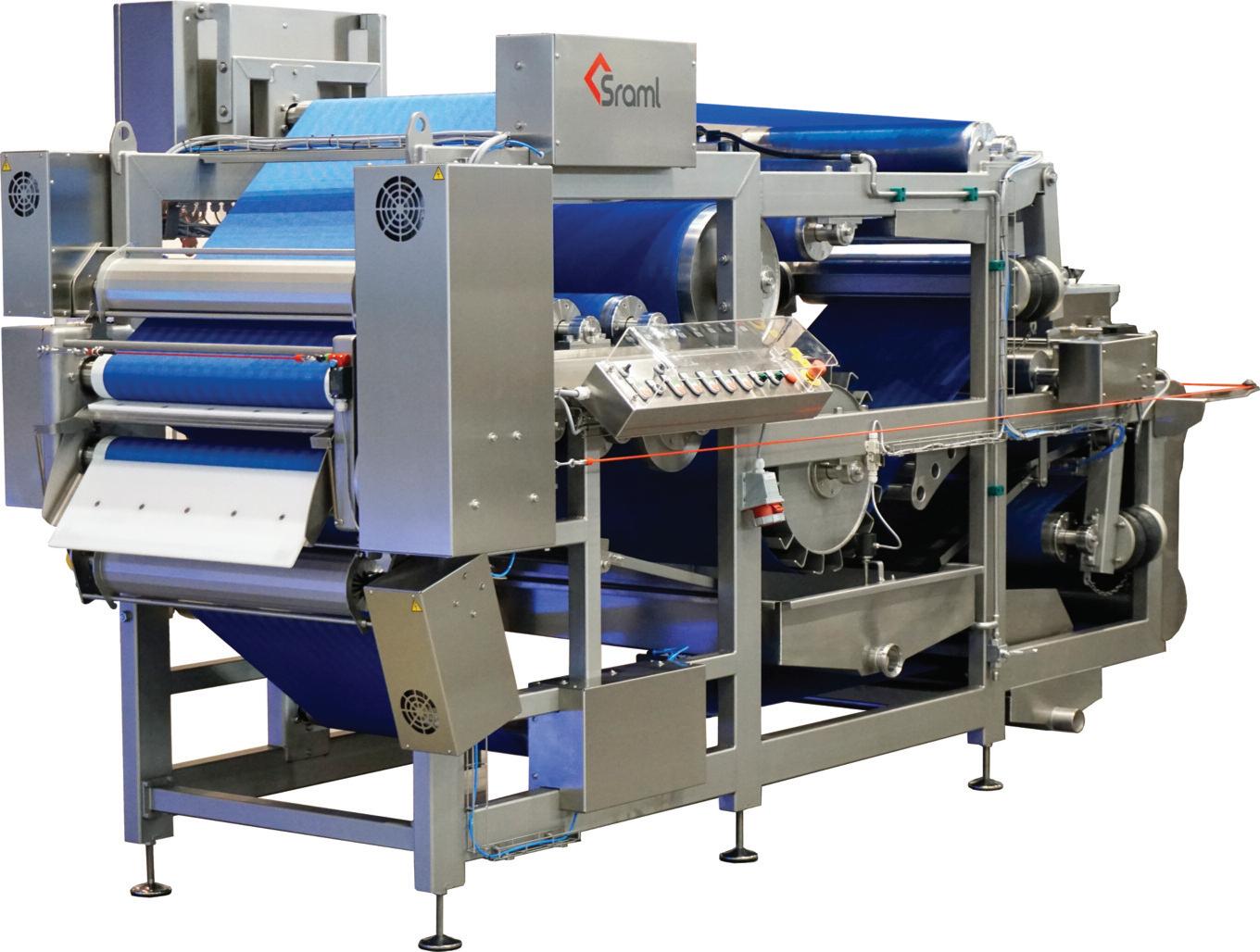
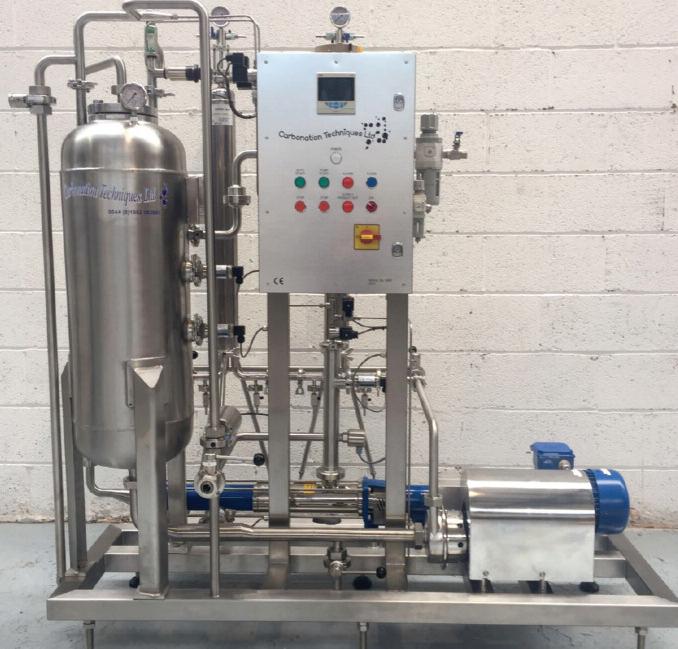
Carbonation machines include: CARBO 200, 500 and 1000, denoting litres per hour capacity Machines are
suitable for beer, cider, wines, soft drinks etc, and capable of carbonating products for filling directly in kegs In addition they can be customised to suit customers CO2 or Nitrogen requirements.
These machines are manufactured to CE standards and customer required specifications Numerous bespoke machines have now been installed across the UK, Ireland, Europe and internationally

Carbonation Techniques Ltd offers various services, from complete bottling lines and complete keg filling lines to spare parts with a full aftercare service
The company is also a UK agent for NT Technics kegging lines, and Ferrero bottling lines
www.carbotech.co.uk info@carbotech.co.uk
ŠRAML cider making equipment from Vitikit
The first stage of cider making is apple pressing, which is why Vitikit Limited has gone ‘above and beyond’ to provide its customers with cutting edge apple pressing equipment. Vitikit is partnered with Šraml, one of the world most experienced manufacturers of fruit processing machinery.
Apple juice is extracted on an industrial scale using different devices Several different press construction solutions are used in the fruit processing industry One of the most popular of these is the belt press Šraml offers 4 types of single and 4 types of double belt presses with different capacities and specifications Vitikit can help turn harvested apples into clean apple juice ready for fermentation
Flash Pasteuriser
Šraml plate flash pasteurisers are designed for heating liquid products to the pasteurisation temperature, holding the product at this temperature for a desired time, and rapidly cooling it after The heat source, for heating water, can be oil, gas fired burner, electric heater or steam The pasteuriser features a user friendly touchscreen interface which allows simple control of the pasteurisation process and quick and easy cleaning after use with the help of the cleaning program All the
components are assembled on a stable stainless steel frame with adjustable feet For non carbonated juice and cider, Vitikit supply “hot fill” solutions
Final Stage Processing
Sraml CP fillers are a series of counter pressure fillers, suitable for filling carbonated or still (cold or hot) liquids into bottles/cans The fillers are mechanical, the individual filling steps are mechanically operated with reliable cams The filler consists of a rotary carousel and a pressure bowl,
with a set of filling valves, allowing the filling of multiple bottles/cans at the same time in continuous motion, without stopping The pressure in the tank is plc controlled via a digital pressure sensor It is precisely maintained inside the tolerance of ±0,05 bar of set pressure Filling valves are built from machined stainless steel parts, with no welds or threads in contact with the product The liquid is gently poured on the side of the bottle, minimising the product agitation. The filling height is set by changing the filling tubes on the valve
For further information: info@vitikit.co.uk
For further information:
30
FO CU S UK Cider

Showcasing the British spirit
Alan Powell
Ding-Dong the WOWGR’s Dead –and so is the Delivery Order!
Further to my previous column (Whither WOWGR for spirits and beer?) setting out my withering critique of the law, HMRC announced the findings of their review of the Warehousekeepers and Owners of Warehoused Goods Regulations 1999 (WOWGR). Their preferred option, revealed to industry at a meeting in September, is to repeal that law next year (following an administrative and legal process) Frankly, given the lack of legitimacy or logic to these obstructive and potentially dangerous provisions, there is precious little alternative than to repeal the law.
This will mean that any revenue trader will be able to deposit, hold or trade all excise goods, including beer and spirit, in a third party excise warehouse without prior registration from HMRC or, if not a UK business, appointment of a duty representative This will re set the position to September 1999 before WOWGR was foisted upon owners of beer and spirits; the underlying and sane requirements of the Excise Warehousing (Etc) Regulations 1988 (EWER) remain in effect for records of ownership and transfers of ownership of goods in an excise warehouse
The myth of the Delivery Order Concerning sales of spirits in excise warehouse, an additional review of the original version of the Alcoholic Liquor Duties Act 1979 (ALDA) seems to explain the “convention” of the Delivery Order for transfer of spirits in an excise warehouse Section 32 of ALDA, headed “Restriction on transfer of British spirits in warehouse” stated: “(2) Spirits manufactured in the United Kingdom chargeable with duty which has not been paid which are in any warehouse other than a distiller's warehouse shall not be transferred into the name of a purchaser until the purchaser produces to the officer in charge of the warehouse a written order for the delivery of the spirits signed by the person in whose name they are warehoused and countersigned by the occupier of the warehouse or a servant of his acting for him at the warehouse.”
This rather archaic provision written when HMCE had officers permanently physically present in distilleries and warehouses requires the preparation of a “delivery order” to be handed over (“produced”) to the officer (sometimes a
team of officers) assigned to the warehouse to notify the transfer of ownership The law prescribing delivery notes in section 32 of ALDA was repealed by the Finance Act 2006 under the headline of section 5 of the FA 2006: “Repeal of provisions of ALDA 1979 of no practical utility etc”. This means there is no longer a legal requirement for the delivery note to be raised for transfer of ownership of spirits.
Under the Excise and Inland Customs (EICS) control philosophy, HMRC commits to focus on systems based control whereby HMCE/HMRC uses traders’ own records to control the revenue akin to VAT principles Accordingly, in order that third party warehousekeepers can keep track of owners and changes of ownership of goods in their warehouses, HMRC now simply states in Notice 197 at paragraphs 8 2 and 8 3 that the seller and buyer each: “inform the warehousekeeper that the goods are to be sold/purchased and give details of the purchaser ’s registration” That is all that is required by HMRC in law; the above passage is effectively a Direction HMRC has made in a public notice under the delegated powers of regulation 7(1) of EWER When WOWGR is repealed, there will no longer be any registration, so no “details” of same will be required either
A format equivalent to the Delivery Order may be used to inform the warehouse keeper of the transfer of ownership per paragraphs 8.2 and 8.3 of Notice 197, but it is no longer prescribed by law, nor is any other method to inform the warehousekeeper of the transfer a lesser standard
Drinks
factory on the way!
More goods news concerns the developments from the government’s Alcohol Duty Review and publication of an Alcohol Duty Bill to repeal the archaic ALDA I will write more in my next column but what is really significant is that producers of all alcohols in duty suspension may be authorized by HMRC to produce and store any alcoholic type “under the same roof” what we called a “drinks factory” thirty years ago The “drinks” factory” will encompass traditional distillers and maturation processes, as well as the production of gin or flavoured alcohol (“rectifying and compounding”) Currently this has to take place in a highly regulated excise warehouse approved by HMRC This consequentially means that there will no longer be the archaic requirement for licensing of distillers, rectifiers/compounders of spirits, wine producers and made wine producers respectively Similarly, the rectifying and compounding of duty paid spirits (eg to make gin outside duty suspension) will no longer require a licence or the “making of an entry”.
Hooray!
Alan Powell
Alan Powell is a specialist excise duties consultant, formerly a Policy official within HMCE’s HQ teams. He is excise duties advisor to the Chartered Institute of Taxation, honorary advisor to the UK Warehousing Association and founded the British Distillers Alliance as a conduit for consultation with, and representation to, Government bodies and to assist and advise on technical matters
www.britishdistillersalliance.com

32
For further information:
The British Distillers Alliance (BDA) is a non profit making body which provides a professional service for independent and craft businesses in the spirits production industry and supply chain The BDA represents distillers, rectifiers and compounders and those in related sectors New members always welcome
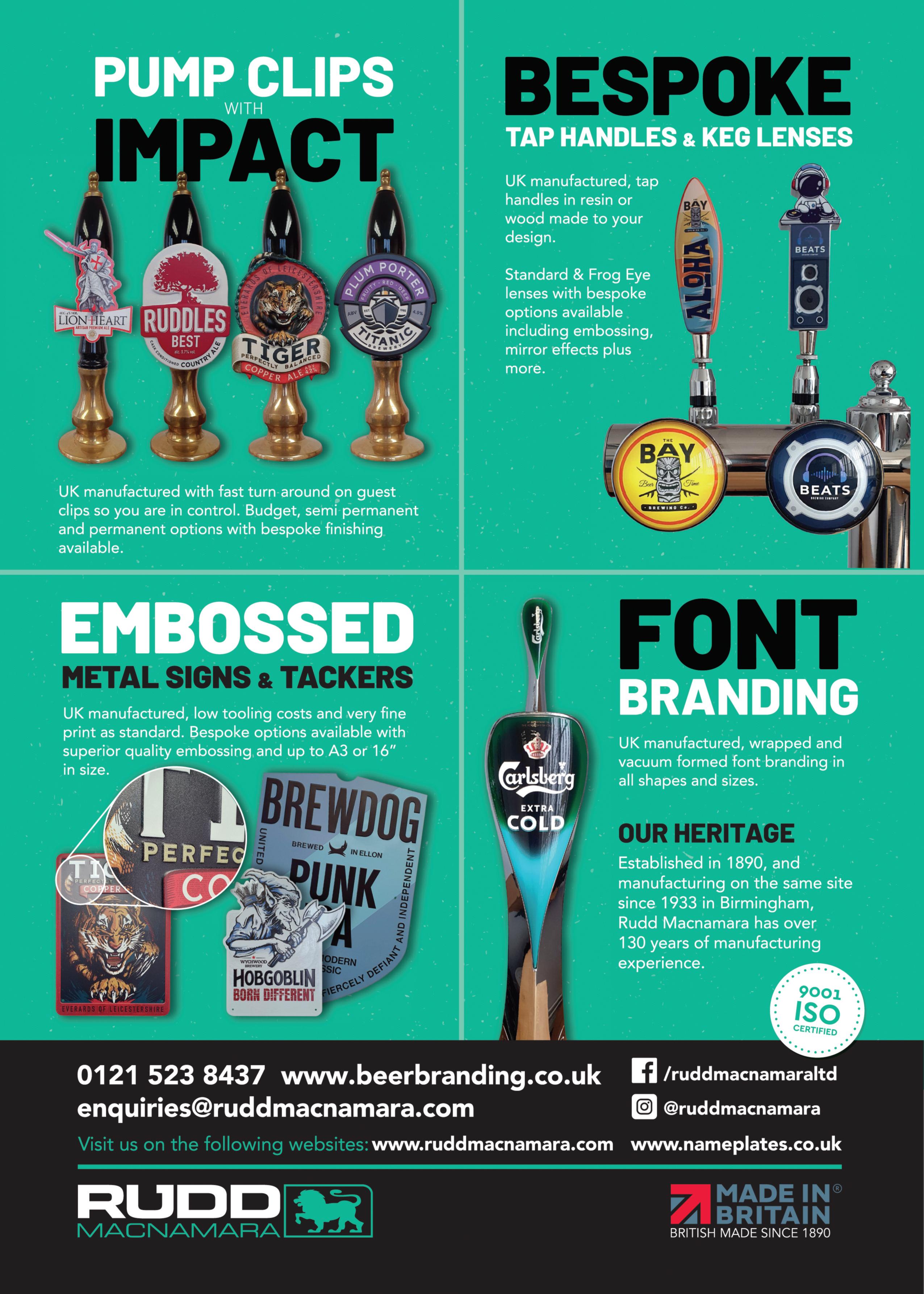
Micro Matic acquires Porter Lancastrian
With the acquisition of Porter Lancastrian, Micro Matic has fortified its leading market position in draught beer fonts and dispense equipment in the UK
Porter Lancastrian, a leading UK manufacturer of draught beer fonts, which employs 40 people, is located in Chorley, North of Manchester, and has its own manufacturing facility with in house design, engineering and sales functions
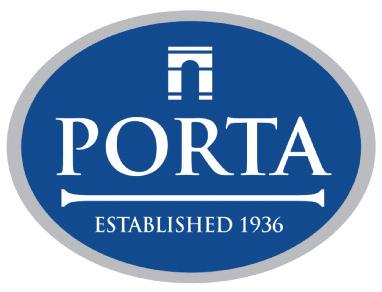
With a dedicated focus on standard draught beer fonts, Porter Lancastrian offers a wide variety of beer fonts, tap handles and lenses, and customers can also create their own artwork and have a complete branded draught beer font
Micro Matic already has a strong market position in custom designed draught beer fonts (with the whole solution designed specifically to the customer ’s
wishes), and the acquisition of Porter Lancastrian thus compliments Micro Matic’s current business extremely well In addition to a strengthened position in the important UK market, the acquisition makes it possible to sell Porter Lancastrian’s products outside the UK through Micro Matic’s global sales network.
Andrew Brown, Managing Director of Porter Lancastrian, who will continue in his role of managing the day to day business of the company after the acquisition, has said that, ”By becoming part of Micro Matic we can achieve positive synergies in our home market, and at the same time we get access to valuable knowledge and know how, not least through Micro Matic’s global sales organization ”



John O’Neill, Managing Director of Valpar Micro Matic, reiterated the advantages that this acquisition would bring to the UK market, saying that,
“Porter Lancastrian is a proficient enterprise with a long history, competent employe and visionary management We do not often find a company that complements our own business so well ”
At the same time, Søren Vilby, CEO of Micro Matic, confirmed that “the acquisition of Porter Lancastrian clearly indicates our high expectation of the UK market, Europe’s largest market for draught beer Acquiring Porter Lancastrian will allow us to form close relationships with our UK customers and together we will strengthen our UK market position ”
com For further information:
micro-matic
New online tool launches to help publicans save money
A new online tool has been launched to help publicans, landlords and bar managers see how much money they could potentially save weekly, monthly and annually by utilising high tech beer line systems
Created by Beer Piper, a leading manufacturer of high tech cleaning systems for beer lines in any type of venue that sells draught beers, lagers and ciders, the simple to use tool calculates how much beer can possibly be saved every week, which is offset against the cost of installing and running the system It then provides the theoretical maximum cost saving totals per week and per annum
Jeff Singer from Beer Piper said: “The cost of living crisis, especially the cost of energy bills, is adversely affecting Britain’s hospitality industry and as an integral part of that industry we wanted to demonstrate clearly that installing systems such as our popular BP4 machine can actually contribute to the bottom line and produce a yield on your draught sales in excess of 100%
“An average boozer in Britain with a total of 10 taps in the pub each holding two pints in their lines, with pints priced at the national average of £4 09, would
potentially be able to save over £3,800 per year by installing Beer Piper ’s most recent BP4 system, which enables you to sell the beer in the lines as you are cleaning them, saving a lot of beer waste ”
Jeff ’s Six Tips to ‘Save Money Behind the Bar ’ are:
1 Install a high tech beer line cleaning system
Advanced beer line cleaning systems such as the BP4 will clean your lines to a high standard, guarantee perfect pints, increase staff productivity, save beer and save money
2. Keep line coolers well maintained If not properly maintained, the heat produced by coolers can increase your running costs substantially Where possible, move all remote coolers outside the beer cellar as they emit heat from their condenser systems Additionally, ensure they are situated away from other equipment with space for air to circulate around it, and their fans kept clean
3 Check your cellar cooling fans
Keep fans well maintained To avoid costly replacements or increased running costs, it is advisable that you periodically check that the fan blades and grills on both your indoor and outdoor units are clean and not blocked,
as blocked grills can increase running costs by up to 40%
4 Insulate your cellar
To ensure your cellar works well, and all equipment works efficiently, consider your insulation needs You may need to install thermal insulation PVC strip curtains and draught stripping. If heating pipes have to pass through cellars, the pipes and fittings should all be insulated and draught stripping should be applied in places where pipes pass through walls Additionally, beer cellar doors and hatches should also be draught proofed and insulated
5 Keep doors shut
Keep your cellar doors closed as much as possible If cellar doors are left open, cold air escapes and warm air enters This can cause excess frost on the evaporators that the defrost mechanisms cannot cope with, and if this happens, manual defrosts may be required which involves switching machinery off for 24 hours
6. Train staff in the art of Pint Pulling Avoid unnecessary wastage by taking the time to train staff in the art of pulling the perfect pint, with minimum wastage
34
beerpiper co uk For
further information:
NEWS Bar & Cellar

Putting the fizz into fizzy drinks requires carbonisation with Carbon Dioxide (CO2).
The CO₂ that is injected into the liquid beverage and then stored under pressure must be free of particles, micro organisms, and unwanted chemical compounds
Any trace of these contaminants can result in quality issues that will impact negatively on a brand To prevent this the quality of the CO₂ used is paramount and filtration key
Download the White Paper “Carbon Dioxide Quality Incident Protection Safeguarding against the threat of contaminated gas in soft drink bottling by Danny Silk” to discover more

LalBrew NovaLager™ is a true bottom fermenting Saccharomyces pastorianus hybrid from a novel lineage that has been selected to produce clean lager beers with distinct flavour characteristics and superior fermentation performance.
It is a robust lager yeast strain with ideal brewing properties, including fast fermentations, high attenuation, and high flocculation The distinct flavour profile is very clean, slight esters over a wide temperature range
LalBrew NovaLager™ is the result of the research and development work of Renaissance Yeast (Vancouver BC, Canada) in partnership with Lallemand Brewing It was selected using classical and non GMO breeding methods to obtain a novel Saccharomyces cerevisiae x Saccharomyces eubayanus hybrid strain that defines a novel Group III (Renaissance) lager lineage, different from any other traditional
Championing malt – at a new level
Colin Johnston has long cared about the relationship between the land, food and drink A career in brewing, and more latterly malting, has reinforced his respect for that relationship.
Now, after six years at Crisp Malt, Colin (pictured) has been promoted to sales and marketing director
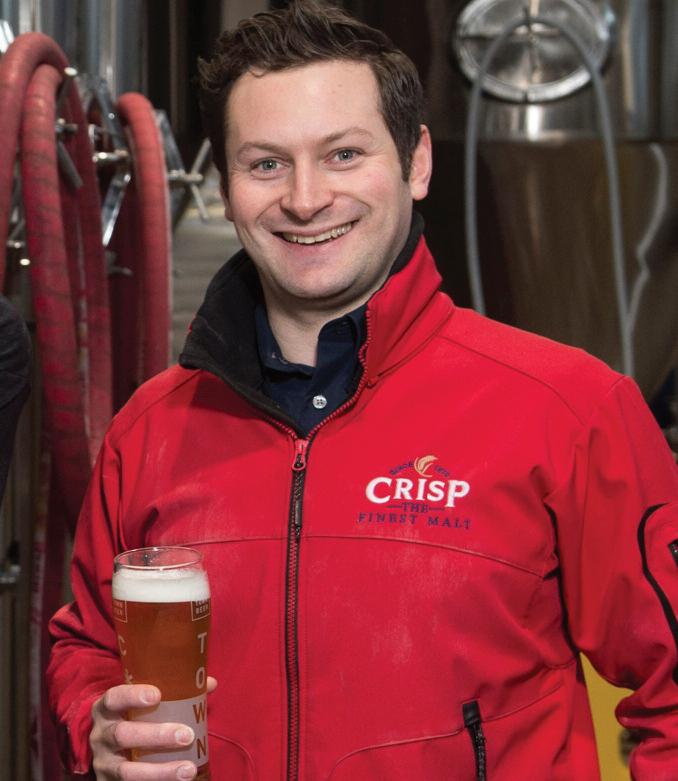
“This new role recognises Colin’s achievements over the years in terms of sales and customer service,” says CEO Stuart Sands “More than that: it gives him the opportunity to expand the craft brewer and distiller education programme that he helped to create This will help in the quest to take malt knowledge in these sectors to a new level.”
Colin’s new position sees him directing the marketing team, as well as the team of UK sales managers
He says, “This is the dream job I get to champion barley growers at one end of the supply chain, brewers and distillers at the other end and of course
maltsters in between There’s an extraordinary pool of experience and technical expertise among my team members and also among other colleagues in the business We can tap further into that huge resource, and into the research done in partnership with growers, customers and university partners, to create even more educational tools for brewers and distillers
“There are always loads of exciting insights to share These include news on agricultural practices; barley varieties; malting processes; malt styles and malt products Obviously, brewers and distillers also want to know about the function and impact of different malts in different beers and spirits We have so much information at our fingertips: my ambition is to share it as far and wide as possible to benefit the industry.”
Feedback in recent research shows support from Crisp’s sales and customer service teams to be well appreciated and highly valued by customers This gives Colin a great platform on which to
Saccharomyces pastorianus strains

This strain is a low VDK/diacetyl producer and utilises patented technology from the University of California Davis (USA) to ensure no hydrogen sulfide (H2S) is produced, therefore reducing the maturation time associated with lager beer production.

Through expression of a β glucosidase enzyme, LalBrew NovaLager™ can promote hop biotransformation and accentuate hop flavour and aroma All these above characteristics make LalBrew NovaLager™, a new and unique tool specially adapted to craft brewing conditions
LalBrew NovaLager™ is a pure culture of Saccharomyces pastorianus available in 500g packs, with 11g sachets coming soon LalBrew NovaLager™ has a recommended pitch rate of 50 100g per hL of wort
start his new role “But,” he says, “we won’t be resting on our laurels There’s plenty more to be done, especially as market conditions get tougher for brewers and distillers in the coming months
“We’ll be looking every which way to support customers as best we possibly can. After all, it’s a long term partnership. Through thick and thin. From grain to glass ”
NovaLager™ premium yeast
36 NEWS Ingredients CO2 white paper download available
LalBrew
selection for modern lager beer styles www.crispmalt.com For further information: www.lallemandbrewing.com For further information: discover.parker.com For further information:
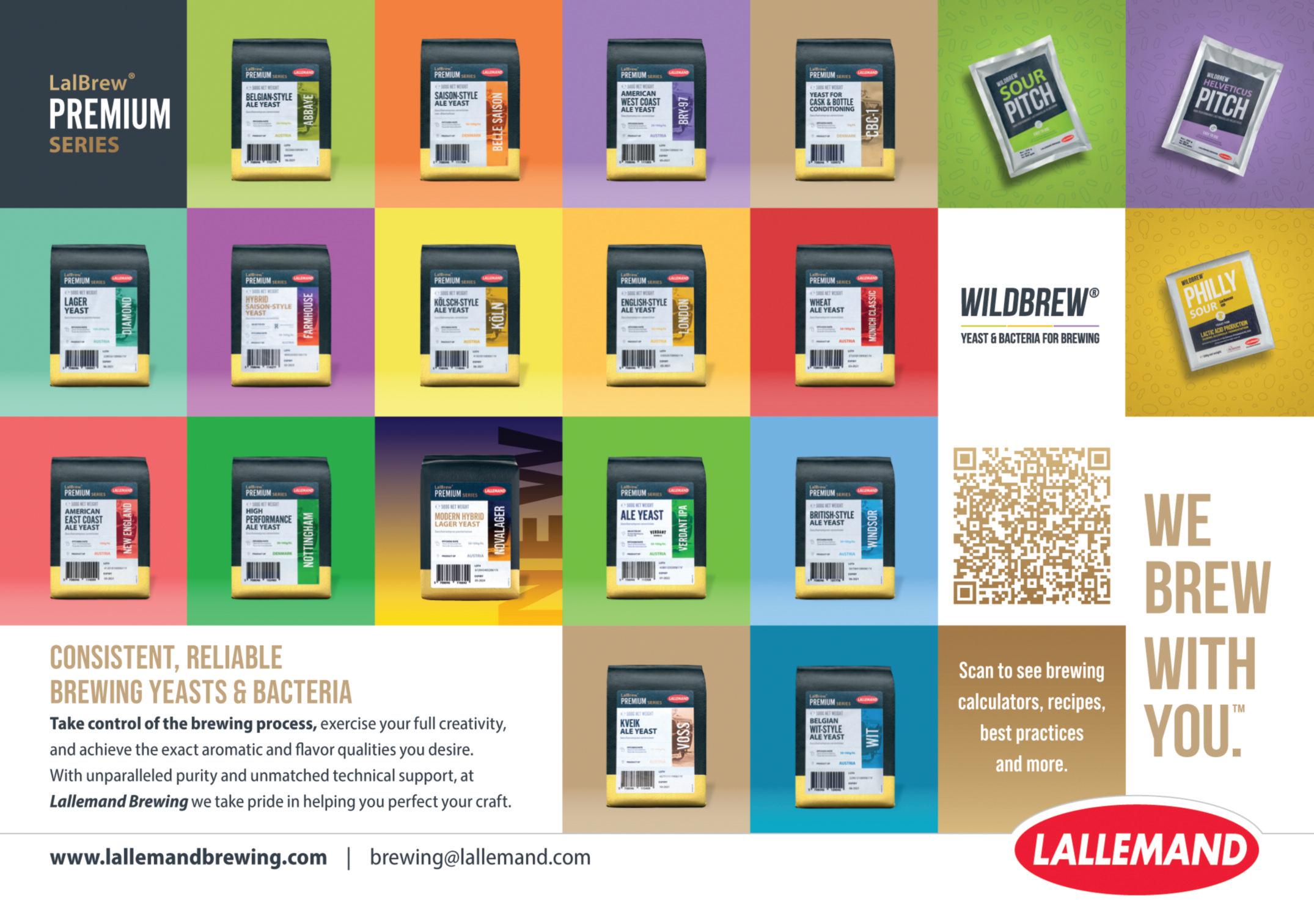

37
How breweries are adapting to replace CO2 with nitrogen
Many breweries from the largest scale industrial breweries to microbreweries and craft beer producers – use carbon dioxide (CO2) at various stages of the brewing process. Applications include inerting, purging tanks or brew kettles, protecting against oxygenation, and nitrogenating the beer.
However, due to periodic shortages of carbon dioxide gas (a by product of the fertiliser industry) brought about whenever fertiliser plants cease production due to high gas prices, breweries have seen enormous increases in the costs of their CO2 supply This year typical costs have increased five fold from £200 per tonne to £1,000 per tonne, although one large brewery which we have been in touch with has seen a £3,000 surcharge per tonne added to its usual CO2 purchase price The implication is that the brewery’s CO2 bill would rise from £3,000 per month to £35,000 per month an unsustainable amount unless the brewery finds ways to adapt its processes away from carbon dioxide wherever possible On top of the rising price of carbon dioxide, the same breweries are also experiencing higher than usual electricity costs. These two issues combined naturally have a knock on impact on the consumer price of beer and, in the worst case scenario, even risk putting some breweries out of business
This is where nitrogen gas comes into the picture Nitrogen, which is much cheaper and more readily available, can be used instead of carbon dioxide in at least two thirds of brewing applications It is already known and trusted by many manufacturers in the food and beverage industry as a viable CO2 alternative for removing oxygen from all types of packed goods, as well as for cleaning, inerting and pressurising bottles and cans before filling Nitrogen is also more sustainable Replacing a proportion of CO2 with nitrogen significantly reduces a brewery’s carbon footprint When the nitrogen used in a brewing
process is released, it merely returns into the air that it came from, whereas escaped CO2 is a greenhouse gas emission
Nitrogen can be supplied in various ways: in high pressure cylinders delivered to site by a third party supplier, as liquified nitrogen in tanks, or it can be generated from compressed air using an on site nitrogen gas generator. The latter method has many advantages over the first two
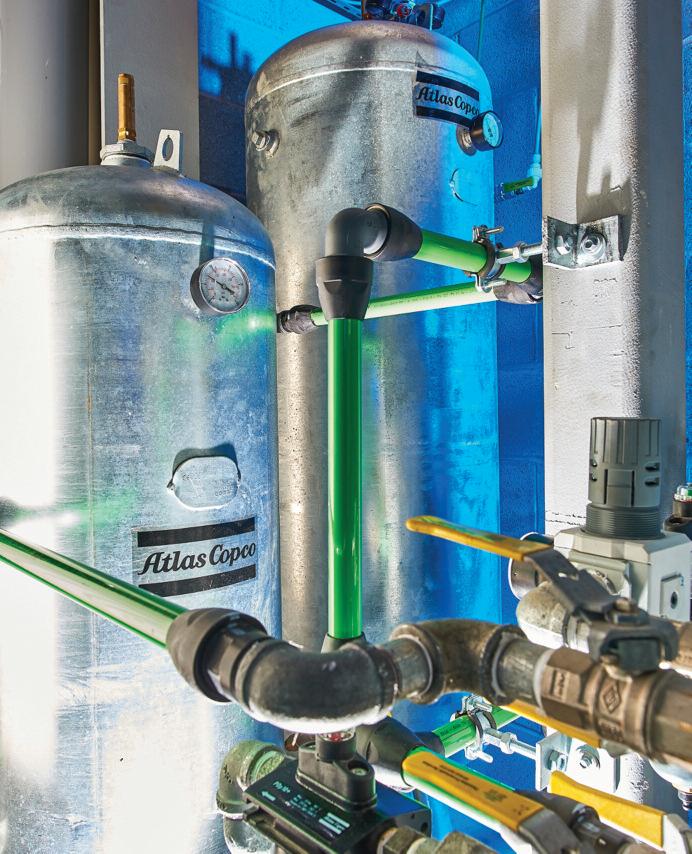
On site nitrogen generation
An on site nitrogen generator is a self sufficient resource that can instantly deliver all the gas breweries need, on demand, 24/7, at the touch of a button It produces nitrogen at as low as one tenth of the cost of delivered nitrogen, with a short payback period now that energy and CO2 prices are high, making this method more attractive to breweries than it has ever been before Self generation solves several other issues as well Gone is the need to order deliveries to site and arrange for collection of empty cylinders or request tank refills, thereby reducing logistics planning and associated administration time and costs Fewer delivery trucks arriving on site reduces carbon footprint. Having nitrogen on tap also avoids any production time being lost while gas cylinders are changed. Furthermore, removing high pressure bottles or tanks of liquid nitrogen from site removes certain safety concerns and eliminates the need to store them in a space where there is adequate ventilation in case of a leak
Suppliers such as Atlas Copco have developed a range of nitrogen generation solutions that make it easy for breweries of all sizes to reduce their dependence on carbon dioxide and improve their profitability. For example, the NGM+ is a compact, quiet and dependable nitrogen generator that maximises the robustness and simplicity of membrane technology Thanks to its exceptionally low air and energy consumption, it also offers the lowest
cost of ownership on the market today The NGP+ is a premium nitrogen generator which uses pressure swing adsorption technology. Carbon molecular sieves guarantee premium nitrogen at the highest purity levels and highest energy efficiency. For smaller breweries, the NGMs membrane nitrogen generator is a cost effective, point of use solution that meets low flow requirements and has a footprint of as little as 0 25 cubic metres
At Atlas Copco, we understand that brewers face an everyday struggle to produce quality beer for the right price, with the challenge sharply increased by the recent scarcity of carbon dioxide and high energy prices We do not want to see breweries forced out of business, soaring beer prices or pub closures Breweries should be insulated from the impact of CO2 supply shortages and high prices, and, in our experience, on site nitrogen generation is the most dependable choice to do so We expect that we will see more breweries adapting as much of their production equipment as feasible to use nitrogen gas rather than carbon dioxide in the future, and when they do, we will be ready to offer our advice on selecting the most suitable nitrogen generators for their individual needs.

www.atlascopco.com

38
For further information:
NEWS
Andrew Butler, Business Development Manager Industrial Gases, Atlas Copco, discusses how and why many breweries are changing their processes to move away from carbon dioxide in favour of nitrogen.
Ingredients

Kombucha brand opts for Beatson Clark’s bottle
Growing drinks brand KTea has switched its bottle supplier and chosen Beatson Clark’s new amber drinks bottle for its kombucha fermented tea.
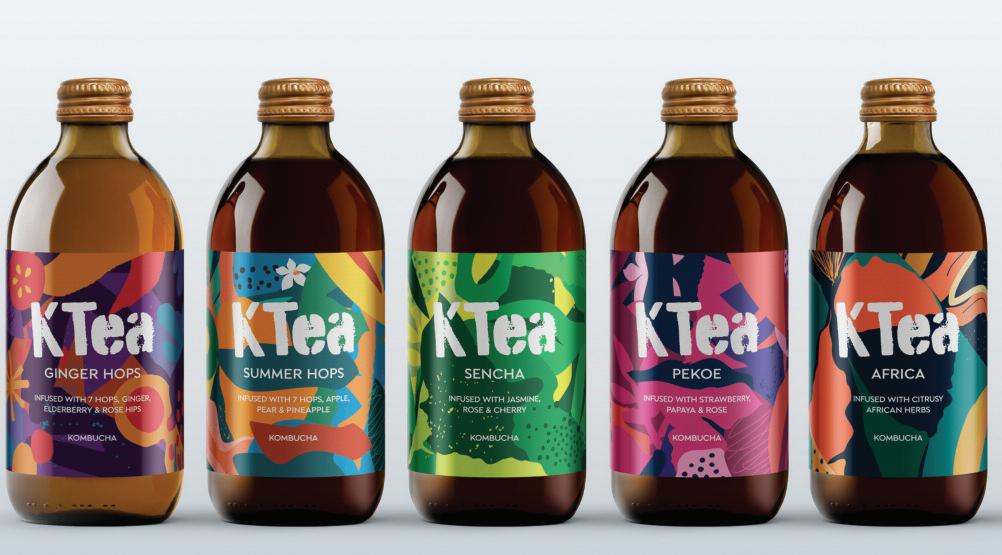
The Guernsey based artisan drinks manufacturer is now using Beatson Clark’s new 330ml amber Alpha drinks bottle with an MCA neck finish as it looks to increase capacity and grow sales

Kombucha is a fermented tea drink which originated in China around 2,000 years ago when it was known as The Tea of Immortality Now it is so fashionable that around 1,000 pubs in Britain sell it As kombucha is full of healthy bacteria it encourages better digestion, relieves inflammation and can promote weight loss.

The size of the global kombucha market in 2021 was valued at USD 2 64 billion and it is expected to grow by 15 6% annually between 2022 and 2030 KTea has been on the market for three years and comes in five flavours: Ginger Hops, Summer Hops, Africa, Pekoe and Sencha It is sold in restaurants, cafés, shops and bars throughout the Channel Islands as well as online
“We were having problems with our bottle supplier in Germany, and we always preferred to use British packaging anyway,” said Kate Attieh, owner and founder of KTea “We like the new Alpha bottle as the dark amber
glass is good for preserving the kombucha and we really like the design too The ROPP cap which screws off and screws back on is an advantage too, and it’s unusual for a bottle like this to have that sort of closure ”
“I would certainly recommend Beatson Clark they’ve been very helpful and supportive indeed,” added Kate “As we’re a small producer we couldn’t commit to large volumes but they’ve been really good with us We’re currently taking 300,000 bottles a year and we will be increasing that once our automated bottler is installed.
“Our product is quite unique,” Kate explained “We brew our kombucha in the traditional way and stay true to the authentic brewing methods we take no shortcuts! Our flavours are subtle, yet rich and well rounded, and we get many visitors to Guernsey who taste our kombucha and after returning to the mainland write to us asking us to send them over our KTea Kombucha
“It’s very good for your gut health People nowadays are thinking more about what they’re drinking it’s low in sugar and full of probiotics. Having good gut health is very good for your whole body and for your brain ”
Lynn Sidebottom, Sales and Marketing Director at Beatson Clark, said: “Our new Alpha drinks bottle is proving very popular with customers It has a retro, apothecary style design which is very appealing for drinks brands as it lends a premium look to their products It’s based on an Alpha Sirop pharmaceutical bottle normally used for medicines, but it’s tested to 3 0 bar which makes it suitable for carbonated or fermented drinks It’s great to see so many drinks manufacturers choosing our new bottle, and we’re especially pleased when they opt for a British manufacturer to support the UK economy and to lower their impact on the environment ”
The 330ml amber Alpha drinks bottle is part of Beatson Clark’s extensive standard range and can also be used for beers as it is available with both an MCA and a standard crown neck finish
Schoeller Allibert, a leading UK manufacturer and supplier of returnable and recyclable plastic packaging solutions, has announced the launch of its new hopper product for the beverage industry.
The Magnum Optimum 1208 Hopper® adds a specialist cap and closures dispenser with a 1200mm x 800mm footprint to Schoeller Allibert’s range of strong foldable large containers
Its special hopper base eliminates packaging waste and removes the need for liners, a separate pallet base, or cardboard frames
The new hopper has a usable volume of 725 litres and is capable of handling
loads of up to 500kg, while also folding up so that 165 units can be transported in a standard trailer
Nick James, Sales Director, at Schoeller Allibert said: “The Magnum Optimum 1208 Hopper® shows that Schoeller Allibert is ready to meet any challenges posed by the future of logistics With its clever folding design, the 1208 will save space in delivery vehicles, helping to maximise the efficiency of your supply chains Like all Schoeller Allibert products, it is reusable and sustainable, and can be fully recycled at the end of its service life to further minimise the impact your company has on the environment We firmly believe that this product will become the benchmark for shipping caps and closures in the beverage industry ”
The Magnum Optimum 1208 Hopper® dispenses parts through a base opening quickly and evenly while enabling complete control of the flow One operator can fold or unfold the hopper in five seconds, while anti slip plugs make it safer and easier to handle
The product is fully configurable and comes with options including a dust cover, long or short sidewalls, a label holder and multiple base footprints
It will be available to rent and can be tracked through Schoeller Allibert’s SmartLink® platform, which enables real time tracking for deliveries
40
New hopper product from Schoeller Allibert www.beatsonclark.co.uk For further information: www.schoellerallibert.com/uk For further information: NEWS Containers

Containers
Busy year for Beer Box Shop
It’s been a busy year for Beer Box Shop as the team prepares for the next exciting stage of the business development
Beer Box Shop, part of Drinks Packaging Ltd (DPL), moved into its new purpose built 18,000 sq ft warehouse in June and is quickly making use of the additional space
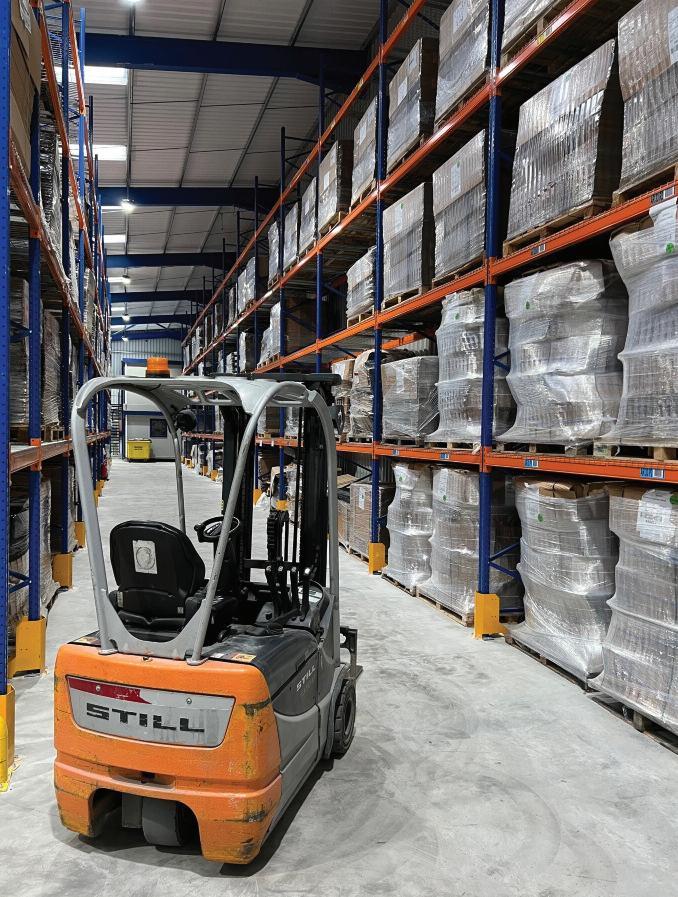
Simon Hulse (DPL Director) said, “There have been an unprecedented number of raw material price increases over the last few years which kicked off during the pandemic due to the surge in demand for home delivery packaging
Although raw material costs now seem to be stabilising, we’re not expecting to see any reductions soon due to factors including the increasing utility costs that our suppliers are now facing ”
The additional warehouse capacity allows DPL to combat higher costs by manufacturing in much larger volumes, with all products then being held in stock, and available to order for next day delivery through the Beer Box Shop website
The increased capacity also means that DPL can offer storage space for its customers’ bulk packaging orders allowing them to benefit from the production efficiencies and lower costs
Simon continued, “From meeting our customers and visiting the breweries we understand that storage space for bulky items such as packaging, glass and cans can be a big issue DPL can now offer a free storage facility for our customers so they can then call off their packaging as needed ”
Beer Box Shop is continually developing new products to expand its already extensive in stock range; this includes the launch of bag in box, free standing pouches, and exciting and innovative retail and gift packaging
And to support small and medium sized customers Beer Box Shop has reduced MOQs across its range Simon added, “We want to make our range accessible to all businesses and encourage our customers to trial new products
“In addition to in stock supply, the creation of bespoke artwork and packaging has always been a key part of the Beer Box Shop proposition, and our designers have never been busier, working closely with customers to create unique and eye catching packaging concepts ”
With such a lot going on at Drinks Packaging Ltd the team is growing, and Nick Birchall recently joined the DPL board to support all aspects of business development Simon concluded, “It’s great that Nick has joined DPL at such an exciting time for our business Nick has a massive amount of commercial and operational experience gained from working with leading global brands and manufacturers which will be a big asset for DPL as we move forward with our plans ”

For further information:


beerboxshop.co.uk sales@beerboxshop.co.uk

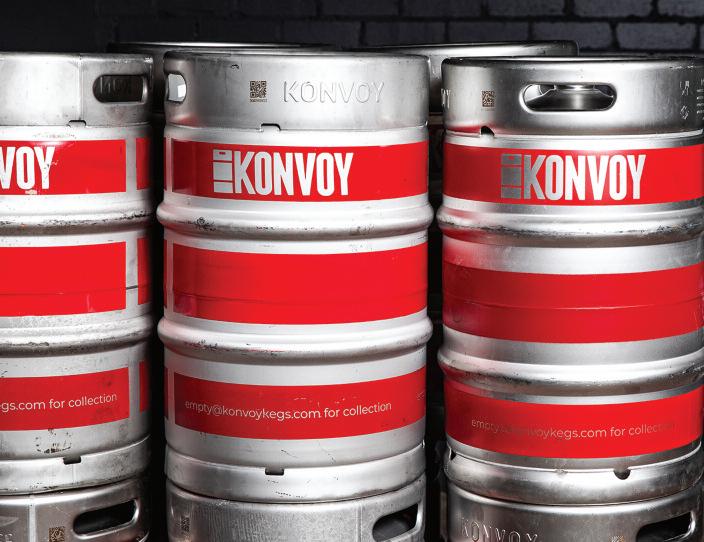
Konvoy ‘set to transport UK and European keg management to 21st Century’
A leading keg rental firm in Australia and New Zealand promises to “shake up” the brewing and hospitality industries by launching operations across the UK and Europe
Konvoy, which will enter the UK & Europe market in early 2023, is claimed as the world’s only stainless steel keg pooling provider that is promising a fully cutting edge smart keg management solution
The new business will lead with its sharable keg rental offering at its core, with long term rentals, also referred to as leasing, and its proprietary IoT tracking technology Even if brewers choose to remain keg owners, Konvoy
can help them track their assets and become a better business as a result
The technology captures encrypted data that can pinpoint each keg’s precise location, enabling things like better rotation, fresher deliveries, faster collections, and greater reusability In addition, the device logs other important data, such as temperature, to create a fleet of smart kegs that can keep getting smarter to meet the future demands of the drinks supply chain
It also removes the need for manual tracking, scanning and administration while helping to minimise theft and losses, which is a global keg problem estimated to cost between $300m $500m per year, according to a 2020 article published by ‘IT In The Supply Chain’
Konvoy is providing an ecosystem of assets, hardware, software, firmware, and connectivity that can also be fitted retrospectively to existing keg fleets to achieve the same results
Christian Barden formerly of Kegstar will head up the new UK & Europe business as CEO
For further information:
www konvoykegs com
42
NEWS

Powderkeg adopts Forest Film for its labels


As part of its drive to become a more sustainable business, Powderkeg has switched all of its can labels to Forest Film, a bioplastic developed in Northern Europe, and available in the UK via UPM Raflatac
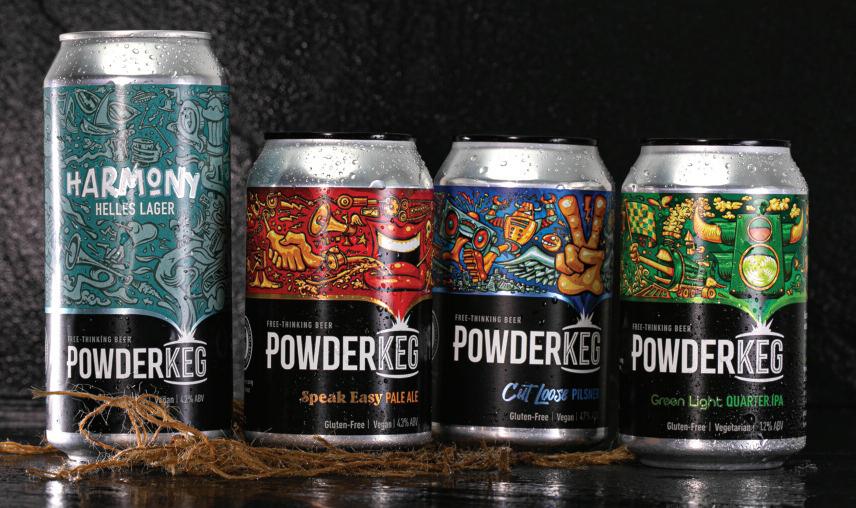
Forest Film is hailed as the first wood based plastic label material on the market, certified by ISCC PLUS It is based on UPM BioVerno naptha, a 100% wood based solution from residues of the pulping process, from sustainably managed forests
Forest Film products can reduce greenhouse gas emissions One study shows the carbon footprint reduced by up to 51% in comparison with fossil based film
UPM Raflatac supplied the Forest Film material to Eclipse Labels, who in turn printed and die cut into the labels for the Powderkeg brief
Powderkeg co owner, Jess Magill, says, “We’re delighted to have made the switch to Forest Film Using paper on chilled canned products is not feasible due to condensation, which causes labels to wrinkle and tear, so before
Forest Film appeared as an option there was no choice but to use fossil based plastic when labelling drinks ”
He continues, “The print quality is great, so there’s no compromise on performance It is more expensive, but I think as a responsible business you have to make decisions based on more factors than just profit Hopefully as these fossil free plastic alternatives get more popular, the price will come down
“Sustainability is a journey and this is another step in the right direction We have minimised our plastic use, use recyclable and biodegradable packaging for our mail order service, and clean and re use supposedly ‘single use’ items like keg caps We also repurpose cardboard boxes that we receive for our own deliveries and have switched to a paper free office
“We also believe that supporting local is a big part of sustainability, so we endeavour to source as many of our goods and services as possible from Devon or the South West, and encourage others to do the same
“The more local businesses can support each other, the better our local economy gets Where possible, stop putting money in the pockets of multinational corporations, and look at the quality and value available on your doorstep
“Customers respond well to it, you usually get much better service and develop good business relationships It’s a win win
“Brewing is an energy intensive industry, so it’s important to drive improvements where we can We have learned that the sustainability journey is one of many small steps. The key is to keep improving bit by bit ”
PJAMA undertakes SALT rebranding project
There’s a brand-new look to the SALT brand In order to evolve with the times and champion its craft, it was time to get heads together and come up with a concept that stands out from the crowd and isn’t afraid of the noise.
With the recent acquisition of its brewing site in London, along with multiple new retail outlets, SALT felt it was time for a refresh The evolution of the SALT brand is something that is incredibly important during this period of growth, to ensure: inclusivity providing great craft beer for our target consumers, accessibility being available to all through the use of its own retail outlets, eCommerce platform and Off Trade initiatives
“Independent, intuitive and inclusive for all is what we strive for here at SALT,” states Nadir Zairi, SALT’s Managing Director, “and with our rebrand we aim to achieve exactly that within the craft market Our rebrand has our core
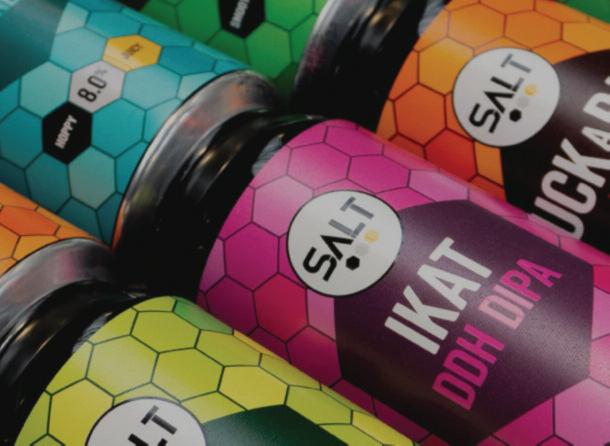
products at the centre, and aims to champion the quality of the liquid inside, whilst providing a drinking experience that is fuelled by inspiration
“‘Craft Mastery Down to earth delivery’ is our new slogan, aiming to champion great brewing craft alongside a professional yet, no nonsense delivery We’re so excited to unveil our new look branding after many months of hard work This new look represents an evolution rather than a revolution, culminating in better execution and visual representation of our brand whilst sticking to our core values
“The original brand was designed to be open, accessible, and cut through the noise in the craft beer fixture, making great craft beer available to all What
upmraflatac.com
we’ve achieved with the brand refresh is accessibility executed better due it’s stand out colours and eye catching design, along with a much needed revitali sation of the SALT brand
“We had the pleasure to work on this rebrand with the talented PJAMA Marketing, who have helped us develop each aspect of the project They have a keen eye for detail and are experienced experts in their field.”
Chris Walker, founder of PJAMA Marketing, said “SALT has proven many times over in its short, successful history that it’s happy to carve out its own lane and run its own race Craft mastery mixed with down to earth delivery gave us something really strong to work with ”
For further information:
For further information: pjamamarketing
uk
co
44 NEWS Branding, Packaging & Labelling
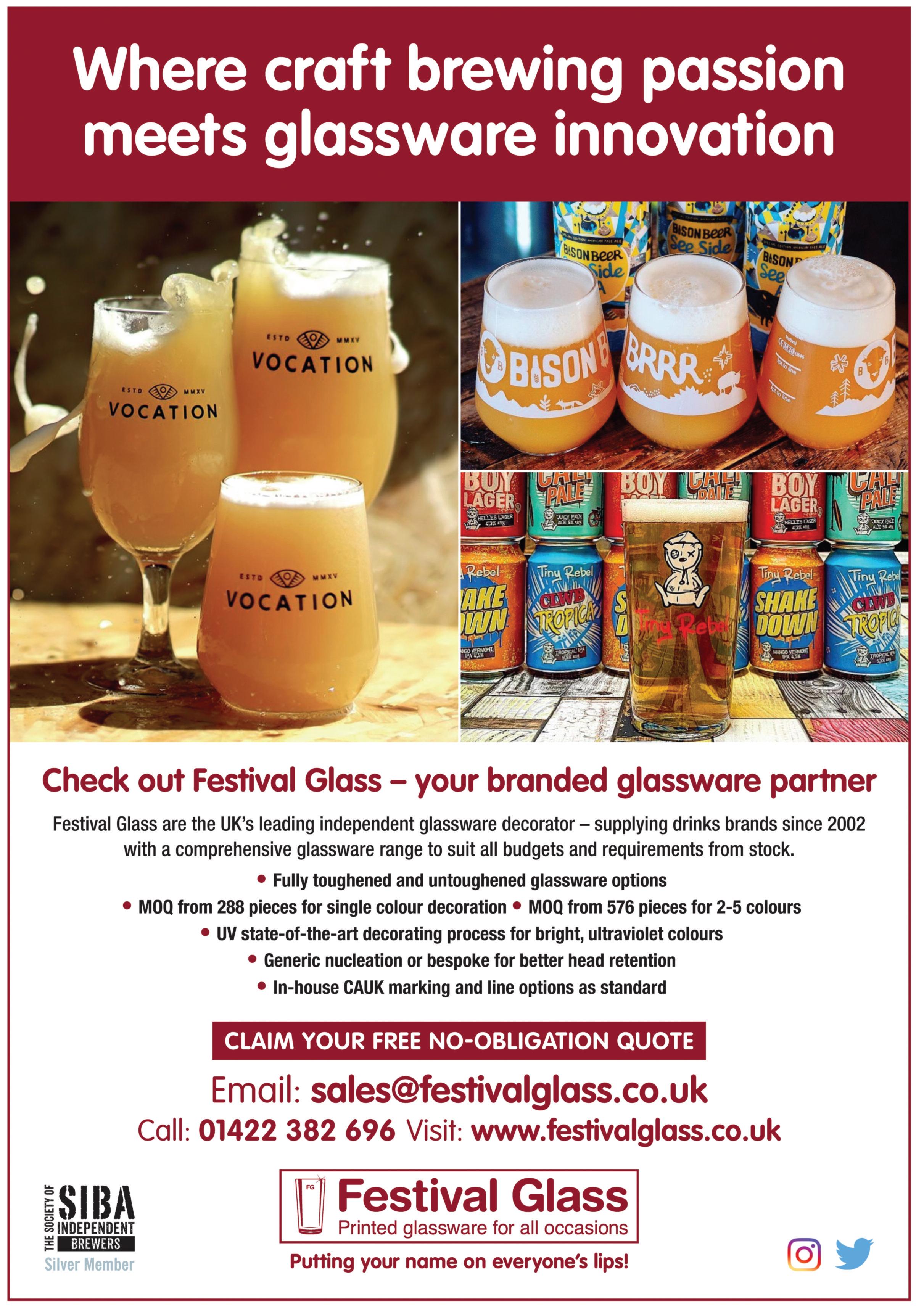
Wye Valley launches newly branded keg stout
Award-winning UK beer producer, Wye Valley Brewery, has completed a rebrand of its popular keg stout in partnership with creative agency, Wonderworks
Relaunched as Nightjar on Thursday 22nd September to 250 publicans at the brewery in Stoke Lacy, Hereford shire, the newly branded keg stout complements the other market leading brands in the Wye Valley Brewery portfolio
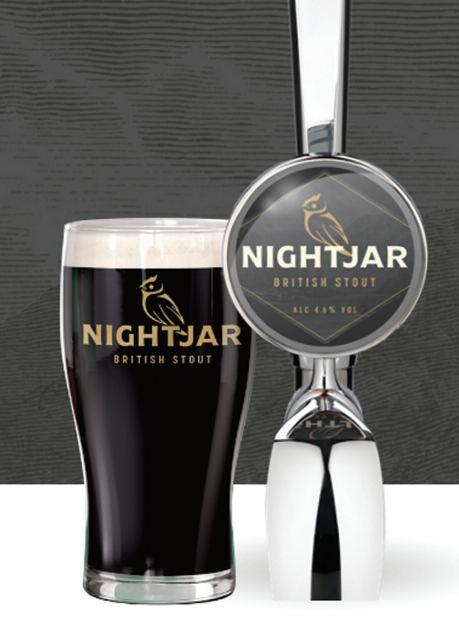
The brewery’s bold ambitions for Nightjar are for it to become the British
stout brand of choice, rivalling other stouts that currently dominate the category As a kegged stout, Nightjar is chilled to 4°C and is nitrogenated This makes it a very refreshing drink with a delectably creamy texture
Wye Valley Brewery’s Managing Director, Vernon Amor, said of the new brand: “When we first created a kegged version of our stout, we did so on a bit of a whim But the results exceeded our expectations, and we are delighted with the positive response from our pub customers And now with great branding, Nightjar has been elevated to compete with market leaders ”


Wonderworks is an independent, female led, creative agency. Sarah Wildman King and Miranda Hart head up the award winning agency which specialises in premium drinks, with clients including Jim Beam, Avallen,
Beer craft – cask x keg
asks Myles Pinfold
It’s back to the future for cask beer; the ‘craft’ movement has always mined our brewing heritage for inspiration and now it’s the turn of cask beer to be rediscovered
Craft beer drinkers seem to have an insatiable appetite for new flavours and styles The repertoire of beers on offer appears to be inexorable and yet the traditionalist cask brewers have largely ignored this and stuck to the same old brews, as if they have not been invited to the party Which is ironic if you bear in mind that craft’s most popular beer style, India Pale Ale, was first brewed almost two centuries ago
The lament of those traditionalists tends to be about the woes of cask and how craft keg reigns supreme This differentiation is a misconception, the reality is that any brewer can play in the craft sector, it’s all about positioning forget the ‘grandma dancing’ scenario
The current dilemma is exemplified on visits to this year ’s GBBF and LCBF (London Craft Beer Festival) The former, with an age profile upwards of 45 and the champion of all things cask, was happily serving ‘live craft’ keg beers For LCBF, with an age profile
largely under 45, cask was also readily available In both cases, for the large part, no one seemed to notice or differentiate between the two dispense formats In fact, the reality is that the majority of drinkers, especially the younger generation, do not appreciate the difference between keg and cask neither do they care, they are just there for the beer
Cask has as much potential relevance to future craft drinkers as it does for the old school traditionalists Brewers such as Verdant, Deya and Cloudwater (to name but a few) are proof that cask, in the right style and presentation, can appeal to a contemporary craft audience Even the American craft brewers (who ‘invented’ craft beer) would love to brew cask if they could, if only the bars over there were set up to serve it
From a brand strategy perspective it is all about market segmentation and targeting, which ultimately is about the type of venue where the beer is available and the profile of the consumers it attracts the more traditional versus the contemporary In the world of FMCG (Fast Moving Consumer Goods) we talk about category cues and semiotics for the
Roku Gin, Courvoisier and Haku Vodka
Wonderworks runs a free 12 week mentoring programme for women who work or want to work in the drinks industry
Simon Daws, owner of The Gloucester Old Spot in Cheltenham, said of Nightjar: “Nightjar is such an outstanding pint that I’ve made it our permanent stout It’s popular with locals and tourists alike and gives us a point of difference on the bar ”
Dave Grimes, owner of local Hereford shire gem, The Bell in Bosbury, said: “Since putting Nightjar on the bar we haven’t looked back Locals and visitors love it and come back for more It’s got a great full bodied flavour; it simply does not disappoint!”
For further information:
www wearewonderworks com

on trade, craft beer and traditional ales form their own separate categories and each has its individual language of communication and market appeal If Timothy Taylor and Dark Star were on the same bar, you would have a different expectation of each beer It’s all about being fit for market and for traditional brewers there is every reason for them to brew contemporary cask beer too, as long as it’s on market
Cask needs to lay claim to its rightful place in the world of craft beer, it already has a foothold, the opportunity is there So embrace the moment, grab those hops and other flavour ingredients and brew some shout out cask IPAs (there are over 20 different styles of IPA out there, and counting ) or whatever else takes your fancy Just make sure you get the branding right
Myles Pinfold is director of brand strategy at WPA Pinfold, specialists in creating brand engagement, with in-depth knowledge of the beer sector. Winners of over 130 global brand design awards.
46
NEWS Branding, Packaging
Labelling
&
pinfold.co.uk For
www.wpa
further information:
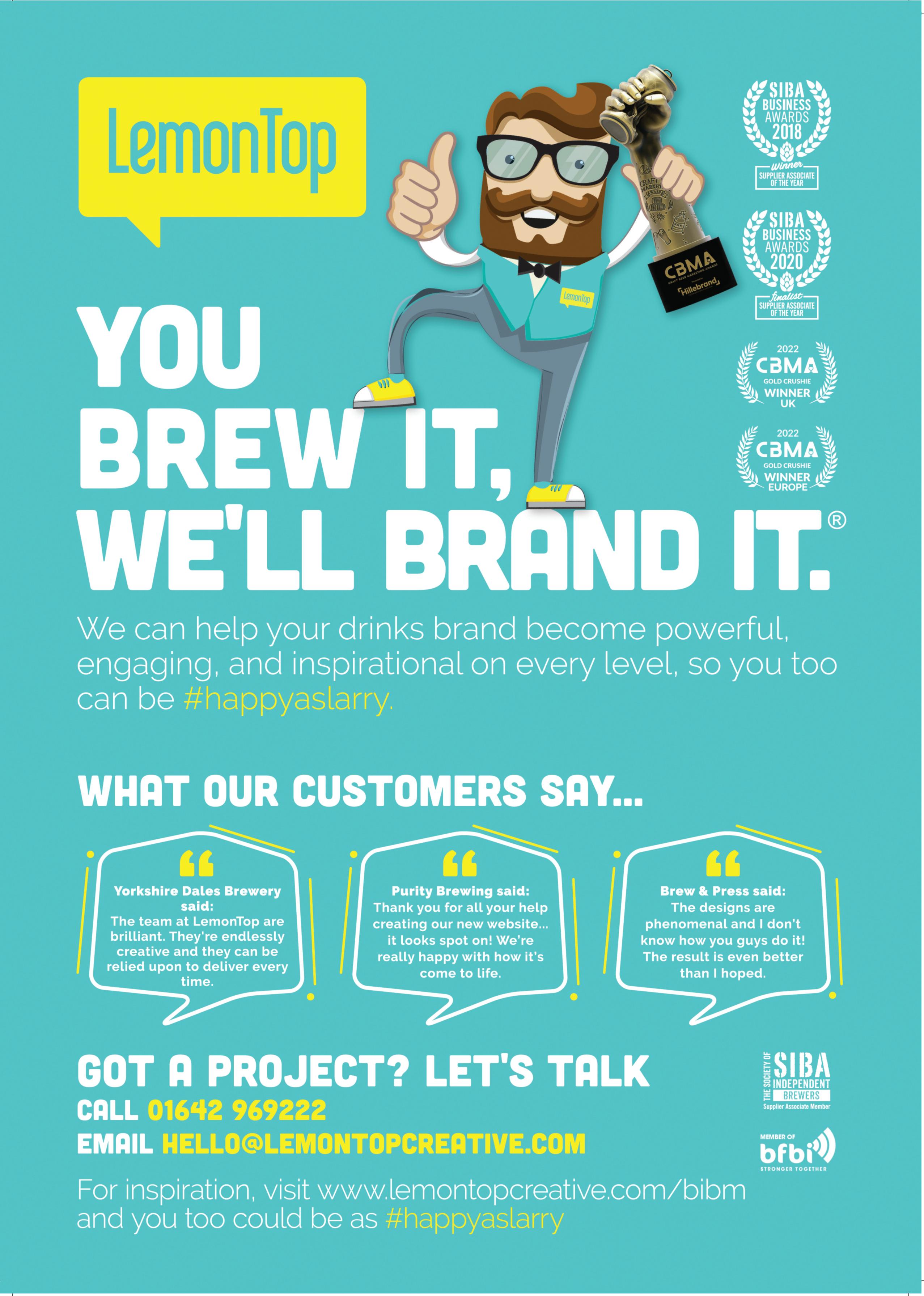
Julian Grocock
An unbeatable beating heart
The conversation can get intense especially, as you might expect, in the current extraordinary and often bizarre circumstances. But it's more usually relaxed, lightweight, flippant…and always essentially amenable.
I'm chatting with friends: Kevin, Vee, Chris, Mick, Charlie, Andy, Simon, Joy, Jack, Mark, Beth, Matt to name just a few. But when I call them 'friends', you have to understand there's only one reason we know each other…
We first met, and continue to enjoy each other's company, in our local pub
Yes, you've probably read me banging on about this before, but this time I'm not apologetic The pub industry is in crisis lockdown restrictions, soaring operating costs, rising prices, falling sales, permanent closures you know the reasons The trade has faced difficulties before, but this time the threat to survival is so serious it's brought into sharp focus just how much of my life social, professional, personal has been shaped by and revolves around my attachment to pubs, pub culture, and pub community
And that's something I desperately don't want to lose.
~
Other institutions and social and economic spheres have played their part: family, school, church, youth club, university, holiday work, and an eight year teaching career But pub appreciation pre dated the real ale fanaticism that ultimately took me into the trade From a very young age I was aware of their broader community role, thanks to my father's sporting activities Before Newark Rugby Club opened its own clubhouse in the 1960s, its headquarters changing rooms, baths and bar were at the Royal Oak in the town centre And the Old Man's addiction to coarse fishing revolved around angling clubs based at pubs, including the Spring House, New Inn, and King William IV
Adolescence and adulthood (I'll avoid the word 'maturity') introduced me to the pub proper, which then infiltrated virtually every aspect of my day to day life from sixth former to undergraduate, trainee to qualified teacher, boyfriend to fiancé to husband, and as a son, brother and father
And of course many friendships were forged over many pints
Living in a rural area for the last thirty years, I have witnessed the progressive contraction of the pub trade Perhaps it's understandable that over that lengthy period ten villages that had two pubs now have just one; but more recently eight communities within fifteen miles have lost their sole outlet. And now times are harder still and threatening the viability of the survivors
It's becoming an increasingly common sight to see noticeboards and posters advertising weekend 'pop up pubs' in village halls This might be welcome in a place with no pub, but it's especially frustrating to see it happening because the local has attracted operators whose approach to business is somewhat alien to the traditional values I always sought to embrace. I know of one instance when the ambition to turn the premises into an Italian restaurant involved instructions to the bar staff not to 'waste time chatting to people who've only come in for a drink' In addition, many pubs' opening times have become more and more irregular and unpredictable I never expected to stroll into the high profile tap of a local microbrewery at 9 30 on a Tuesday evening and be told I was too late to get a pint
~
This is emphatically not only about me and my pub based experiences I'm asking every one of you to take the same trip down memory lane, remember the extent to which the pub has impacted on your life and leisure, and imagine a parallel existence without it there to play such a prominent role
Wouldn't your time on this planet have been totally different too?

Nor, I'm afraid, do I have a ready prescription of solutions I have actively supported and briefly involved myself in community purchase campaigns And I have for many years been an advocate for differential tax rates between on and off trade alcohol retail, to reflect the marked contrast between these sectors' respective post sales responsibility for monitoring their customers' consumption and conduct
Furthermore, to balance that disappointment at the brewery tap a couple of paragraphs ago, the pub's owners deserve effusive praise for the integral village store and coffee shop, which they've established with the support of Pub is The Hub Diversification is certainly a way forward as long as the pub's traditional role remains at the core of its business
As the beating heart and hospitality hub of British community life, the pub really is unbeatable
But can we stop it from being beaten into submission?
Julian Grocock
48
Julian Grocock is a former pub landlord, managing director of Tynemill/Castle Rock, and chief executive of SIBA.
Extensive experience in beer and pub politics, brewery and pubco operations, and on the front line in the pub trade...‘from cellar to ceiling’.
The View Through My Glass Bottom
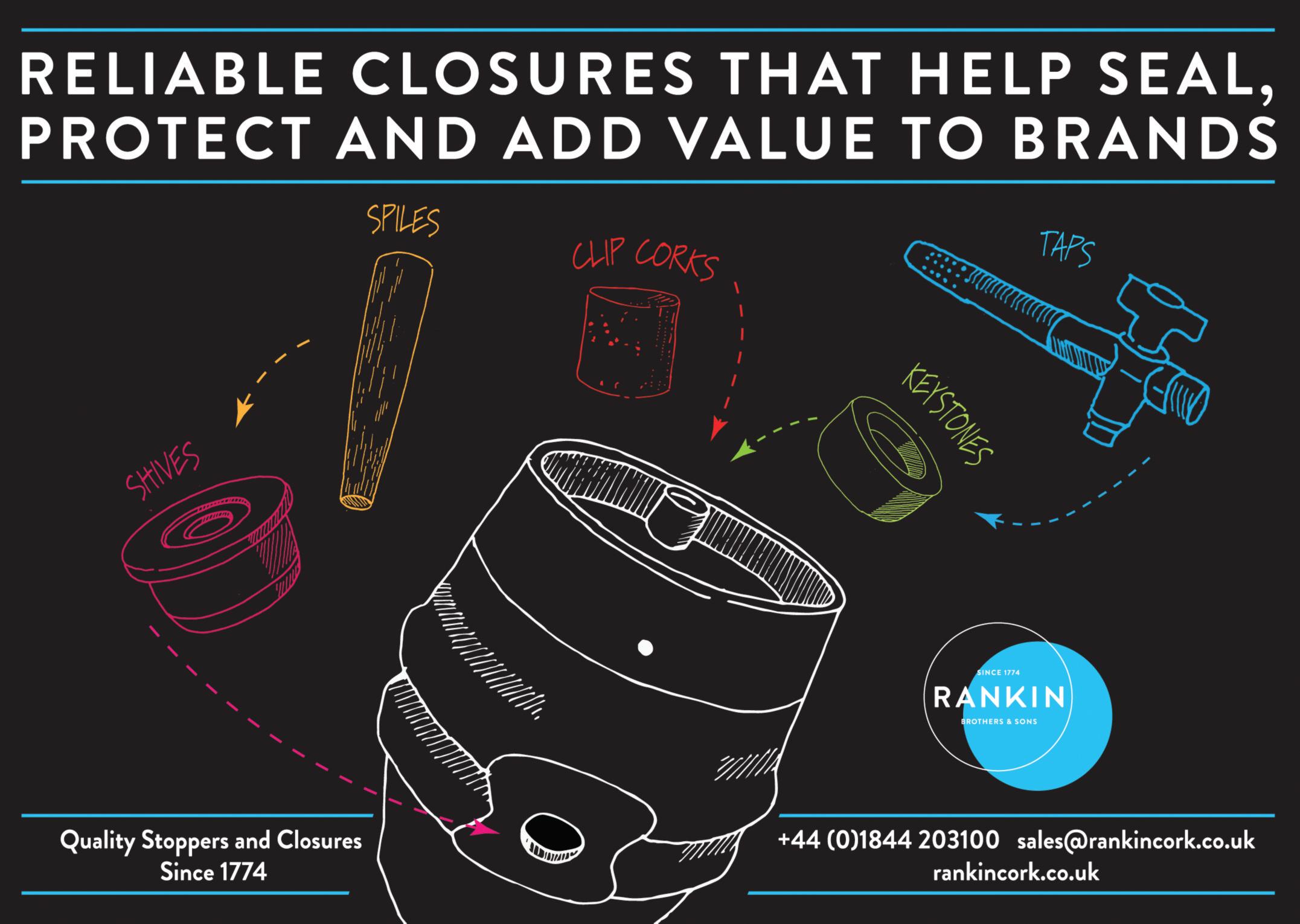
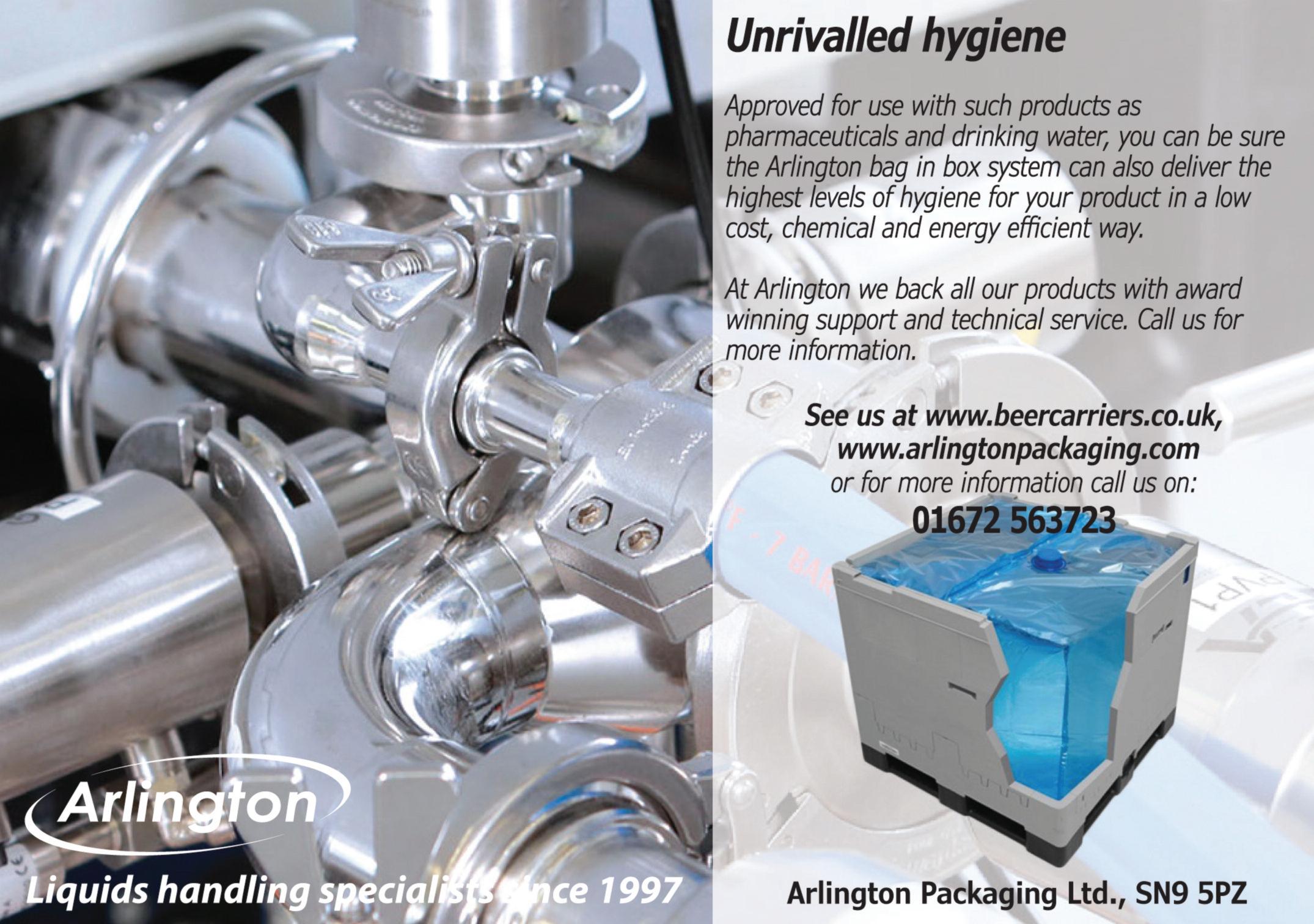
49


Brewing Food & Beverage Industr y Suppliers’ Association 11 Side Strand • Pendeford Place • Pendeford Business Park • Wolverhampton WV9 5HD Tel: +44 (0)1902 422303 • Fax: +44 (0)1902 795744• Email: info@bfbi.org.uk • Website: www.bfbi.org.uk OVER 100 YEARS SERVICE TO THE BREWING, FOOD & BEVERAGE INDUSTRY Brewers / Distillers Benefits BFBi represents the supply chain into the beverage industr y with Full Members ranging from barley and hop merchants through to process engineers, packaging, point of sale, etc. Manufacturers, including brewers/distillers, may join as Associate Members. As a “traditional” industr y (in its best sense), where relationships between supplier and customer are recognised as adding value and ensuring sustainability, BFBi is well known as a facilitator of social and professional networking events. ASSOCIATE MEMBERSHIP COST: £235 + VAT per annum For more information about member benefits, please contact info@bfbi.org.uk 50 DECEMBER 2022 Friday 2nd BFBi MIDL AND CHRISTMAS PUB TOUR Worcester Tuesday 6th BFBi WESTERN SECTION CHRISTMAS SOCIAL Flight Club, Bristol FEBRUARY 2023 Thursday 23rd JOINT BFBi/IBD MIDL AND SECTION ANNUAL ENGINEERING SYMPOSIUM Briggs of Burton, Burton upon Trent MARCH 2023 Thursday 2nd BFBi NORTHERN SECTION ANNUAL LUNCHEON The Edwardian, Manchester APRIL 2023 TBC BFBi NATIONAL LUNCH London MAY 2023 Friday 2nd CR AFT BREWERS CONFERENCE Nashville, USA
There will be a new look to your Brewing & Beverage Industries Business (B&BIB) magazine from the Spring 2023 issue onwards.

We've long enjoyed a fantastic working relationship with BFBi (Brewing, Food & Beverage Industries Suppliers Association) and will now be proud to include that organisation's 'Your Voice' publication within our pages All
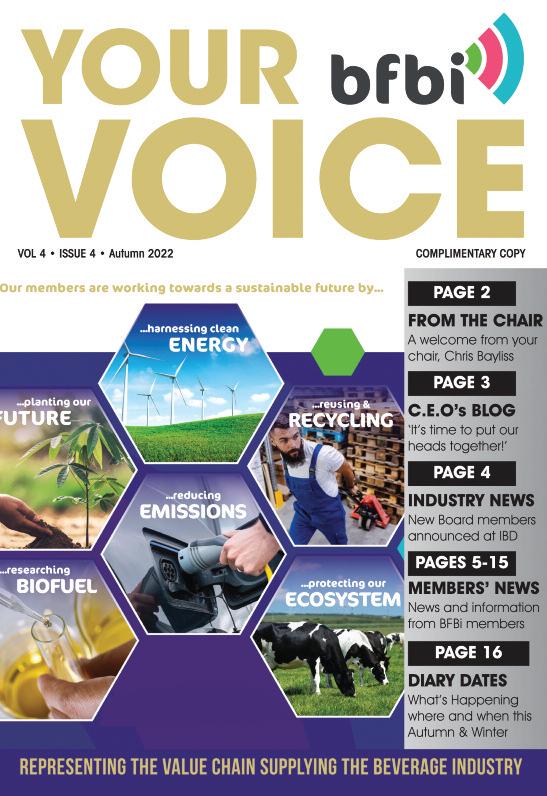
members food and drink producers as
as the Supply Chain will be added to our distribution
access to market, whilst also providing
member
to reach B&BIB's well-established drinks
We
working relationship! 51 The NEXT issue of will be published on 28th February 2023 Showcase Feature in this issue... In The Mix l Malts, hops, fr uit, yeast and any other raw materials which contribute to the finished product. l Chemicals and other adjuncts used in the drinks production process. l Companies providing power and other resources, plus products and ser vices to help meet hygiene regulations. EDITORIAL DEADLINE : Friday 3rd February ‘23 ADVERT ARTWORK: Wednesday 8th February ‘23 For more detailed information on all these features, visit brewingbusiness.co.uk/features-list/ SPRING 2023 PLUS our PREVIEW feature on ‘Who’s Showing What’ at BeerX 2023 l If you’re exhibiting at the event, here’s your chance to let potential visitors know what they can expect to see and discuss on your stand. PLUS - Look w ho’s joining us fr om our next issue onwar ds!
BFBi
well
list, giving our existing advertisers even better
BFBi
companies with greater opportunities
production readership.
look forward to a successful







































































































